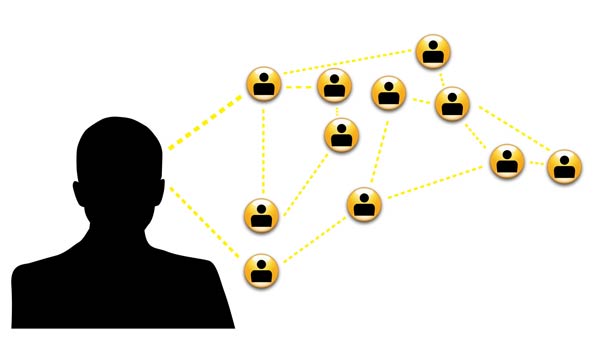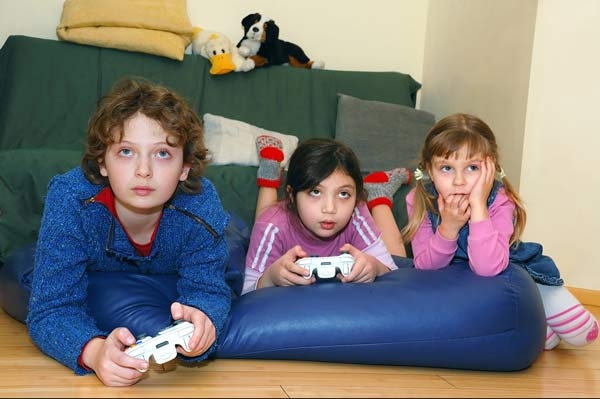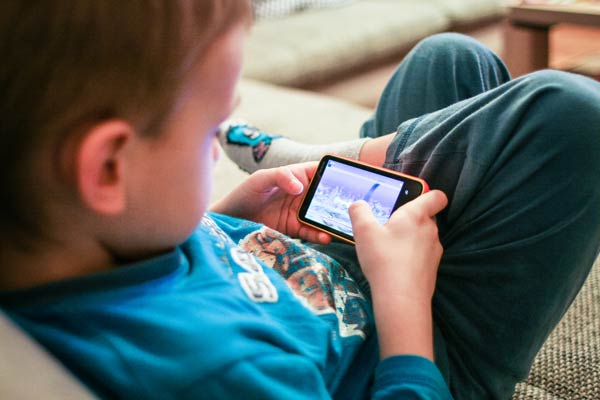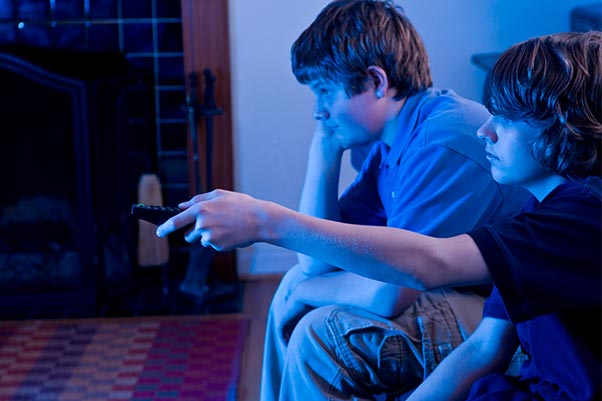In 2008, a teenage child in my extended family was victimized by an online predator on Facebook. While the child was not physically harmed, the events were serious enough that the predator was ultimately sentenced to 40 years in prison for his history of child predator crimes. Obviously, it was a traumatic experience for both the child and his family.
Read More »Benefits of Living Unplugged
The onslaught of digital duress may be stripping back the fabric of your family. It is no secret that in this age of digital everything, digital parenting has leapfrogged over so many other more traditional means of parenting. Although digital parenting is a necessary adaptation, it's important for families to strengthen communication before technology.
Read More »Is This Donut a Secret Message From Your Kid?
The issue with parenting in the digital age is that it moves at the speed of light, and kids are at the very forefront of it. They know about the latest apps weeks, perhaps months before you do, and they are quietly discussing who-knows-what with their friends via texting apps and Facebook messenger. The age of being able to eavesdrop on a conversation and get all the knowledge you ever needed is over.
While those days are over, we’ve developed a new way to keep up with our kids, and digital parents need digital weapons. With that being said, kids are starting to get a bit wise to the ways of the digital parent.
Read More »10 Ways Parents Can Prevent Cyberbullying
I've seen lots of material online and from my daughter's school about how to respond to cyberbullying. But if I can prevent it from happening in the first place, that's even better. All parents should know the top 10 ways we can prevent cyberbullying.
-
Promote self-esteem and confidence. Encourage them to find activities they enjoy and develop skills to be proud of. Confident kids are less likely to be picked on, and they're also better able to shrug off bullying if it does happen
-
Let them know it's okay to confide in you. Kids need to know that they can tell you anything – good or bad – and you won't over react.
Why Snapchat Should Terrify You
Children have more ways than ever before to communicate with their friends and family. While living in the digital age has its advantages, parenting in the digital age can be a difficult and confusing process. Each day many apps are added to digital stores. Whether your child is using an iPhone, a tablet, and iPod or an Android device, he or she has access to thousands upon thousands of applications. While many of them are harmless, there are a few apps that pose a significant risk to your child. Snapchat, is one app that, on the surface, may seem innocent enough, but can be extremely harmful.
What is Snapchat?
Read More »Lessons Learned from Cyberbullying
Unwelcome sexting, abusive text messages, digital public humiliation and social media harassment all fall under the umbrella of cyberbullying. The sobering realities of cyberbullying have become so prevalent that the Federal Bureau of Investigation (FBI) published a "Cyberbullying and Sexting: Law Enforcement Perceptions" bulletin advising agencies that "94 percent of school resource officers agreed that cyberbullying was a serious problem warranting a law enforcement response."
Sexting Is Just the Beginning
With the relatively new ability to send images and videos through technology, people of all ages are taking advantage of this ability to connect to others. Unfortunately, it has also led to the evolution of “sexting.” While this is legal for adults (but still risky), it is not for minors and can have serious consequences on a minor’s emotional state, not to mention their professional and academic future.
Depending on the minor, the situation in which the sexting occurs, and how it is handled, the ramifications can vary greatly. However, it almost always leads to some negative effects for the teen.
What It Can Lead To
While parents may be aware of certain repercussions of sexting, there are a wide variety of consequences that even the most conscientious parents may not be aware of. Regrettably, it can lead to the following negative effects:Cyberbullying on Youth Sports Teams: It Happens More Than You Think
The threat of cyberbullying isn't limited to any one group of kids. Students in the chess club are just as likely to be a victim of cyberbullying as students on the football team. If you don't believe that, then take a look at the story below.
KTTC News reported a case of cyberbullying at a local high school in Minnesota. In this case, members of the football team were caught engaging in cyberbullying. Here are some points from the case:
-
Football coaches at Southwest High School heard about instances of cyberbullying
-
Several players who engaged in cyberbullying were benched for a must-win game
-
The principal of the high school said cyberbullying can be more damaging than traditional bullying
Digital Parenting: 11 Facts About Cyberbullying
Cyberbullying is defined as a young person tormenting, threatening, harassing, or embarrassing another young person using the Internet or other technologies, like cell phones. The psychological and emotional outcomes of cyberbullying are similar to those of real-life bullying. The difference is, real-life bullying often ends when school ends. For cyberbullying, there is no escape. And, it’s getting worse. Read on to get the facts.
Calculator or Hidden App? Teens Are Disguising Content With Apps
In this day and age teenagers are more tech savvy than most adults. They chat on their smartphones with their peers, download all the popular apps and are greatly familiar with their device settings. Another recent thing that a lot of teens do on their smartphones is hide pictures, messages and apps. Find out how teens are doing this and discover what you should be looking for on teens' phones.
Hiding Apps
The most popular way to hide apps or any other content on your phone is by using an app that does that. Both Apple Store and Google Play have a lot of hiding apps for download and the majority of them are free.
Read More »Could Your Child Be an Online 'Troll'? But What Is Trolling?
“Trolling” is making inflammatory, anonymous statements on the Internet for the sole purpose of derailing an online discussion or provoking the other participants in the discussion. In other words, another way for kids to participate in cyberbullying. A troll, in Internet lingo, is somebody who does these things online. Often times you might encounter this image when searching for a “troll”:
Is My Child Watching Pornography Online?
When we think of people who are consumers of online porn, we automatically picture grown adults. However, with access to pornographic sites becoming increasingly widespread, a large number of tweens and teens are believed to have viewed some kind of online porn.
How Many Children Are Watching Porn?
Today, it's reported that at least 90 percent of kids between the ages of 8 and 16 have watched pornography online at least once. Not only have most tweens and teens seen porn, but boys ages 12 to 17 are actually the largest consumers of online pornography. With this statistic, pornography has even been compared to being the drug of choice for youth.
Read More »The 9 Most Used Cyberbullying Tactics
No one wants to see their child being bullied. As bullying has been covered more frequently by the media, it has become obvious that bullying no longer includes just the "Steal your lunch money" tactics of past generations.
7 Safety Rules for Video Chatting
Picture your favorite person in the world. It could be your spouse, your child, a parent, or a family friend. If you could speak with this person right now, would you prefer a phone conversation or an in-person one?
Of course you'd rather see their face, their expressions, and their gestures. A phone call just doesn't compare. That's why almost 2 in 5 teens have used Skype, iChat, or GoogleTalk to video chat with others.
If your teen regularly uses a service like Skype, or if he has a social networking account (most social networks have video chatting capabilities on-site), teach them these Internet safety rules for video chatting online.
6 Requirements for Managing Peer Pressure Among Kids/Teens
Peer pressure can be extremely hard to deal with for kids and teens. It becomes increasingly difficult without the support of their parents. When it comes to managing peer pressure among kids/teens, there are things that you should do, and things that you must do. Here are six such "musts" for dealing with peer pressure:
-
Talk to your child about the dangers of drugs, alcohol and sex: Talking to your child opens up a dialogue that can be very important. If your child feels safe discussing these difficult topics with you, there is a greater chance that they will come to you if they are curious about trying them.
10 Things Parents Need to Know About Xbox LIVE and Kids Safety
Xbox LIVE is the online service for the Xbox 360. With a paid gold membership and a set of headphones, your child can play online with a community of 40 million other users worldwide.
This can be seriously awesome for the gaming enthusiast in your house, but there are 10 important things parents should know about Xbox LIVE and keeping kids safe before setting it up for their child.
-
It's more than just a gaming site. Xbox LIVE users can also chat with each other, send and receive friend requests, and share their profile and gaming stats.
Sex Offender Monitoring Apps Every Parent Should Have
We already know that there are a plethora of online resources available to inform parents about the residence of sex offenders. With the integration of these registries and apps, parents can stay up-to-date on the sex offender registries.
Sex Offender Search App- This App is great for families looking for a new home. You can use the App to put in the address of a house you're interested in and a map will pop up, showing you if there are any sex offenders in the area. The same goes for your child's school; virtually anywhere in the US is available. You can also get alerts through emails and text if a new offender comes into your area.
Understanding Cyberbullying: Why It Happens and How To Prevent It
In recent years, the news media coverage has exploded with tragic stories and consequences of cyberbullying. Cyberbullying is defined as bullying that occurs over electronic devices, often through texting, email or through social media websites such as Facebook. Bullies can send hurtful messages to other children, post embarrassing pictures of their peers on facebook, or send hateful email messages.
Cyberbullying takes on the same form as face to face bullying. The cyberbully will have a clear intent to harm the victim (either emotionally or by threatening them with physical harm), perceivable aggression in the messages, and a perceived or obvious imbalance of power over the victim by the cyberbully.
The abuse that children endure at the hands of cyberbullies leave many parents, teachers, and guardians wondering what causes the bullying to happen in the first place. Cyberbullies engage in harmful behaviors towards their peers for many reasons:
-
The cyberbully wants to feel powerful
10 Signs Your Child is a Cyberbullying Victim
Cyberbullying is one of the most common online dangers, and kids and teens are particularly susceptible because they tend to take their tormentor's words to heart and resist confiding in their own parents.
And with these statistics in mind, it's an especially important part of parenting to recognize the signs of cyberbullying. These ten signs could signal that your child has fallen victim to a cyberbully.
Signs of Cyberbullying
-
Appears nervous when receiving a text, instant message, or email
-
Seems uneasy about going to school or pretends to be ill
10 Reasons to Monitor Your Child's Internet Activity
Some moms, dads, and grandparents I know get a little squeamish about parental monitoring. Are they invading their teen's privacy?
When it comes down to it, parental monitoring isn't about privacy, it's about safety. Here are 10 reasons for every parent to start monitoring their child's Internet activity.
Teaching Children About Internet Security Right From The Start
There is never a time too early in the life of a child to start thinking about Internet security. Children of younger and younger ages are starting to get a glimpse into the world of the Internet, and many are potentially at risk if they are not informed of what they should and should not do.
Have A Conversation
Before you ever get into the technical aspects of what you can do to keep your child safe online, it is a good idea to simply have a conversation with them. You can explain to them the steps to take if they are confronted by someone online that they do not know.
Read More »Long Term Effects Of Bullying On The Victim
Bullying has often been considered as something that some children experience at some point in their lives. However, with the Internet and smartphones, bullying has been elevated to an extremely sophisticated type of social harassment. New studies are showing that bullying can have negative effects that last long into adulthood.
Loss of Confidence
A single act of bullying can cause diminished self-esteem that can last a lifetime. A child who is bullied feels powerless and their self-identity as a competent person who is able to protect himself in the world becomes wounded.
Read More »How To Approach Punishing Your Teen For a Digital Slip-Up
From catching your teen sexting, to finding out that they violated your phone contract, digital slip-ups are never fun to deal with. It is not surprising that teens and parents often experience power struggles over digital rules and privileges. Teens are often given such high responsibility with technology at such young ages, that it is natural that there are going to be some problems. Digital rule-breaking is still a relatively new avenue of parenting that requires specific attention and action.
Read More »5 Tips for Mobile and Internet Child Safety
Children now spend more time with the media via Internet and mobile technology than they do with their family, in school, or sleeping.
A nationwide survey conducted by the Kaiser Family Foundation found that in just five years, media use has increased from 6 ½ to nearly 7 ½ hours a day in children between the ages of 8 and 18. As if this weren’t frightening enough, children also tend to be master multitaskers, using as many as three technological tools at once to browse through their digital lives.
Read More »Apps to Prevent Distracted Driving
When your teenager gets behind the wheel, you can't always go along with them. That means that you can't perfectly prevent distracted driving behavior—and unfortunately, teenagers are guilty of distracted behavior behind the wheel all too often. Up to a quarter of teenagers admit to receiving and responding to text messages every time they're behind the wheel. More than 10% of drivers under the age of twenty who were involved in fatal crashes were driving distracted when the accident occurred.
Read More »Digital Parents Are Asking: Is the Video-Chat App Skype Safe?
What is Skype?
Skype is one of the most popular video chatting and communications platforms in the world. Microsoft owns the program, and it is a company that has brought many innovative technologies to the world over the years. Skype allows people to talk to each other from other ends of the world through video, audio and text chat.
Users can download the Skype program to their desktop computers, laptops, tablets or smartphones to enjoy the benefits. The program is free to download, and users have access to some great features upon registration. Additional features such as voice calls and texting are available for a small fee.
How is Skype Beneficial?
7 Consequences of Teen Sexting
If you think the trend of teen sexting is troubling, just listen to some of the attitudes teens have about it. Many teens shrug and say it's no big deal, nothing could really happen. A recent study on teens and technology reported that 90% of teens who had sexted said that no negative consequences ever came from it.
Teens think they are invincible, that nothing bad would happen to them. If this describes your teen, talk about a few of 7 consequences of sexting that could make them regret hitting “send.”
-
It could be shared with people you don't intend to share it with. The person you are sexting
The Educational Impact of Bullying and Cyberbullying
Parents, educators, and lawmakers everywhere are worried about the impact of bullying and cyberbullying on our kids. The impact on every aspect of a child's life can be far reaching. With the digital age, many kids don't just have to worry about being bullied in the schoolyard. Instead, with the technology available today, bullies can reach our kids at school, after school, and even in their own bedrooms. With smart phones, computers, tablets, and cell phones, bullies are able to reach into a child's life and affect every aspect of it. Bullying and cyberbullying are no longer a simple matter of standing up to the bully and having a face-off. It's no longer a simple matter.
The Pros and Cons of Xbox: Is Xbox Good for Kids?
Many parents today are wondering if Xbox is good for kids, and while there is much debate about this topic, the findings tend to show there may be more cons than pros when it comes to kids playing the popular video game system. With complaints that this kind of gaming leaves kids too isolated from others to concerns over damaged vision from staring at the screen, parents and educators everywhere are very wary of the potential negative effects.
Yet, there are positive effects that can come from playing Xbox and Xbox Live. Xbox Live is a feature of Xbox which enables the player to game online against their friends or other people. Both Xbox and Xbox Live can have plenty of positive and negative impacts on kids.
Pros
Some of the most common positive effects of playing video games include that Xbox:
-
Increases self-confidence
Teaching Kids and Teens Media Smarts During Breaking News
With constant breaking news streaming in through media outlets and social networks, kids and teens need to know how to digest and decipher news reports. Teach them the basics of how to filter out what is accurate and important in the news world. We found a fabulous article on the subject originally published on Common Sense Media and written by Sierra Filucci. Please check it out.
When big news breaks, it's easy to get caught up in following the news online. But while the Internet -- from major news sites to Twitter -- can be a valuable place to find useful information, it can also be the source of misinformation. Helping kids and teens understand the news and how to separate fact from fiction is an important job for parents and educators.
Here's some advice parents can offer kids and teens who consume the news:
Remember, breaking news is often wrong. In the rush to cover stories, reporters make mistakes, officials don't always have correct information, and tidbits that sound plausible often get passed around before anyone can check for accuracy. One Texas TV station reported through closed captioning that Zooey Deschanel was one of the accused Boston Marathon bombers!
Read More »uKnowKids data breach update #2
I want to share an update regarding what we have learned over the last few days about the database vulnerability that was discovered last week and that we publicly reported on Monday February 21, 2016.
Read More »Breaking news... A uKnow database was breached by a hacker, and here are the facts as we know them right now
It is with significant personal regret that I share with you the news that uKnow had a private database repeatedly breached by a hacker using two different IP addresses on February 16, 2016 and February 17, 2016.
Read More »Digital Parenting is Important for Teens, Whether They Like it Or Not
Digital parenting is one of those topics that can make families uncomfortable. No teenager wants to feel like Mom and Dad are sticking their noses into his or her personal business, and no parent wants to keep their kids from making the most of the advantages the internet can provide.
It’s important to know what your kids are doing on the internet: it can be a tremendous tool for school and for social interaction. It also opens them up to a whole range of possible dangers including cyberbullying, child predators, and inappropriate content. How do parents keep their kids from undue risk without stifling their independence?
Read More »Internet Security Could Save Your Child From Crime
Protecting their child is the number one objective of any parent. This is the primary role and responsibility. Unfortunately, it is becoming a role that is more difficult with the Internet around. Although the vast majority of people use the Internet for harmless everyday tasks, there are some who use this medium to commit crimes.
Worse yet, many of these crimes are committed against children. Take this headline from the Calgary Herald for example:
Read More »Mobile and Internet Child Safety: The Role Of The Schools
Educating children is the role of any school, public or private. They are supposed to teach them about the ways of the world and make them more prepared to join the workforce when they have completed their education.
There is always a question of exactly what the schools are responsible for teaching children and what should be left to their parents. Mobile and Internet child safety is becoming more and more on the shoulders of the schools to help out with teaching.
Mobile Phones At An Early Age
Read More »Internet Security Question: Is Someone Spying on Your Kids?
You're a 21st-century parent who embraces the wonders of the Internet. This is why you allow your kid to roam the web in search of homework answers, to play online games, and to video chat with grandma.
But you're also aware of the online dangers. That's why you allow use of the desktop or laptop only in the living room where everyone can see. And the built-in camera is only available when you're watching.
Read More »Digital Parenting: The Dark Side of Instagram
The photo-sharing social media site, Instagram, has been treading more on the innocent side since its launch and rise in popularity. Recently though, a new disturbing trend has risen on Instagram that should have all parents concerned.
Instagram and Teen Body Image
More and more young girls are making their profiles and pictures public and posting a picture for others to assess their attractiveness. Many of these young girls are in provocative poses and are dressed in revealing clothing. The young girls post their pictures using hash tags such as #amipretty or #beautycontest, looking for the most positive comments to boost their self-esteem.
Read More »Tips for Cell Phone Safety for Your Tween or Teen
There once was a time—you may be old enough to remember—where kids actually had to go to the TV and turn the knob to change the channel or adjust the volume, play a game out in the backyard or take turns on a landline phone to call their friends. But nowadays, in this technological world, kids are presented with all kinds of gadgets as parents strain to keep up with everything.
Read More »Inconspicuous Apps Teens Are Using to Date and "Sext"
Thanks to evolving technology, teens have a lot more access to the outside world than in previous years. Today, almost every teen has a smartphone or iPhone. Teens use their phones to talk and text but they also use their smartphones and iPhones to download apps to keep in touch with their friends. Sometimes, teens abuse these apps and use them for things the app is not created for.
Video chatting apps, social messenger apps, and messaging apps all offer different styles of chatting with different features. These apps are designed with the purpose of helping users keep in touch with friends, relatives, and even co-workers, but a lot of teens abuse these apps or some of these apps' features. They're often used for things they are not meant for, such as sexting. Simply put: abusing the rules of these apps can put them in serious danger.
Video Chatting Apps
Read More »Teen Dating Apps That Are Bad News
The trend of using dating apps seems to become more and more mainstream each year. People of all ages are exploring their romantic options on sites like eHarmony and Match.com. The surge in the popularity of dating apps has certainly trickled down into the teen demographic.
As you can imagine, most dating sites, including the ones specifically intended for teenagers, have their risks. Dating apps require personal information in order to generate matches, and while users are virtually searching for their soulmates, they are also unwittingly allowing access to information that anyone can use to find them.
Read More »iPhone Monitoring Your Teens: the Very Basics
The threats of identity theft, iCloud hacking, stalking and harassment are very real in the digital age. Thus, safeguarding your children from the perils posed by new technology has become part and parcel of modern day parenting.
The troubling aspect of this necessity is that the technologies are constantly evolving, making it imperative to stay up-to-date and knowledgeable on digital defense. Luckily, Apple is consistently making iPhone monitoring for parents much more accessible and easier to accomplish.
Enabling Restrictions
Read More »When is a Child Ready for a Cell Phone?
Cellphones have created a few dilemmas in digital parenting. Particularly with smartphones, parents have to be sure what their children are doing on social media and other apps.
Let's look at the first dilemma that parents will come across: deciding when their child should have a cellphone. In this discussion, your child is sure to bring up the argument that every other kid in their class already has one.
This is a time when you have to make a personal decision for your child and ignore the pressure from other parents.WebMD covered this topic and provided a few statistics on the matter. Here is some of the background information:
- 85% of teens aged 14 to 17 have cell phones
Digital Parenting: Keeping Children Safe From Online Dangers
Any sensible parent is going to keep their child safe from dangers that present themselves in the real world. This same sense of concern should extend to dangers that present themselves in the online world. Digital parenting is as important as parenting against dangers in the real world.
Read More »Setting Digital Rules for Your Teens and Tweens
Being a digital parent is an assignment that is not easy to handle. It is certainly something that is not always all that easy. However, digital parenting is a part of the expectations for parents these days. Without proper supervision, teens can make huge mistakes online as well as they can anywhere else.
Read More »Prom Night Digital Decorum: Preventing Teens From Oversharing
Prom is a very exciting event for most teens who have finally reached the age of being able to attend this important milestone. While in the past students and their guests were limited in communicating about prom, present day social media has created a whole new form of communication for them to let others know about their plans and activities in real time. This, of course, has its pros and cons.
While sending texts to friends to coordinate meeting times or showing pictures can be reasonably safe, using social media can be problematic when it comes to safety and security.
Read More »How to to Stop Teen Texting and Driving
Texting is responsible for more teen deaths behind the wheel than alcohol, making it a serious concern for parents everywhere. Stopping the problem requires a multi-faceted approach, along with clear expectations and firm consequences. These tips can help keep your teen safe when they are on the road.
#1: Take Advantage of the Technology
Teenagers don't always tell the whole truth, which means you may have to use their own technology to keep them safe. A text monitoring app can log all their texts, including the time they were sent, for you to view on your phone or computer.
Read More »Digital Parenting: Understanding the Risk of Snapchat
Snapchat started as a college course project, but has grown exponentially in the last year. Now available, for free, through app stores, the application allows people to send and receive pictures and videos directly to their phone.
The "Snap" is only available for a set period of time (about 10 seconds), then it is deleted from the phone and the server. Snapchat seems like a fun enough venture, but for those trying to parent in the digital age, it can be problematic.
Potential for Sexting
Because Snapchat only keeps photos for 10 seconds or less, parents have no way of really knowing what content their child is swapping. For many years, Snapchat has been dubbed the "sexting app". Although not every person using Snapchat is sexting away, the app didn't get their nickname for no reason.
Read More »Mobile and Internet Child Safety: Comparing The Old With The New
When considering mobile and internet child safety as parents, it may cause you to reminisce. "Well, back in my day this was never a concern."
Don't feel old, we're all working through it. Technology has changed and will continue to. Due to this, considering a child's safety hasn't changed - instead, there's now more to be cautious of.
Read More »Establishing That the Internet is a Privilege, Not a Right
Something that parents need to establish with their children early is that using the Internet is a privilege, not a right. This is important because if kids get too accustomed to and reliant on the Internet, it will be harder to end their privilege to it if they go against the rules.
In order to practice digital parenting, there has to be set rules that children understand and abide by. These rules vary on a case-by-case basis, but they should require open conversation between children and their parents concerning their activity on the Internet. When the rules are set, parents have to be ready to remove the Internet privilege if their child breaks the rules. It's not just to keep children safe from cyber threats, but also a life-long lesson that they can't take shortcuts and cheat the system.
Read More »You're Invited: The Internet & Mobile Safety Workshop for Parents
Today’s children represent the first generation to grow up entirely in a digital world. They have spent their entire lives using computers, video games, webcams, digital music players, mobile phones, instant messaging apps and everything else the digital world has to offer. In a sense, our kids are all “native speakers” of a digital language.
They are "Digital Natives". So what does that make this generation of parents?
Those of us who were not born into a digital world are, and always will be, "Digital Immigrants" and we are now in the process of learning a new language while also trying to raise our kids and keep them safe.
Read More »Internet Security for Children in the Digital Age
The most important segment of society to keep safe on the Internet is obviously our children. Children are the most vulnerable to being preyed online. They are not as experienced in using the Internet and may not understand the dangers that lurk there. Thus, Internet security is an important topic of conversation to have with your children.
In an article about Internet security and children, Microsoft.com recommends preventing the download of free material online that may contain spyware or viruses:
Read More »If Your Kids Use iPhones or iPads, Help Has Arrived: uKnowKids for Apple
In the past few years, iPhone and iPad usage with kids has expanded tenfold. In order to keep up with these changes, uKnowKids is launching a new product specifically designed to help parents whose kids are using iPhone, iPads, iTouches and Macs. It is called the uKnowKids for Apple, and we plan to launch it into public beta in April.
Big iPhone and iPad News
You can pre-order to get early access to the uKnowKids for Apple today!
Note... We are still working on a final name the product, so "uKnowKids for Apple" may go through a name change in the next few weeks or months, but you get the idea :)
With the uKnowKids for Apple, parents can gain dramatically better transparency into your child's iPhone activities than any other solution on the market today. Let's take a look at some of the new features.
View iMessages (Text Messages & Picture Messages):
We all know that keeping tabs on text and picture messages is helpful for parents who are trying to educate and coach their kids on how to use technology safely and responsibly. With the uKnowKids for Apple, parents are able to view their teen's incoming and outgoing iOS text messages (SMS) and picture messages (MMS)... iMessages... via their iPhones, iPads, iTouches, and Mac computers. Additionally, the feature enables uKnowKids customers to review stored photos. Keeping an eye on these interactions can help parents ensure that new phone users aren't getting involved in peer pressure, sexting or other digital dangers.
Read More »Methods for Mobile and Internet Child Safety
The Internet, possibly, the most used form of communication (if not now, it soon will be!) has become a fun and exciting place to play and talk with friends and family. However, it has also become a place where bad things can and do happen.
With all of the digital dangers like identity theft, online predators and cyberbullying around the corner for Internet users, even adults have to leery about what we are doing. Nevertheless, when it comes to our children, we have to practice foresight, patience, and the knowledge of how and what technology your children use and have.
Read More »How to Handle Technology in Your Child’s Classroom
For some parents, it’s a scary thought: My child will be using the Internet today.
Will her teacher be watching closely?
Will he become too absorbed with technology?
Will she stumble upon something she shouldn’t see?
Luckily, most teachers will quickly remind you: technology in the classroom does not lead to complete anarchy. However, that doesn’t mean you can’t be involved in how the technology is being used or have apprehensions about what effect that has on your child.
Mitigate your concerns with these five tips, which will help you become more comfortable and familiar with your child’s use of technology in the classroom.
1. Talk About Safety
Read More »The Need for New Policies Regarding Internet Security
When it comes to laws regarding Internet security and bullying, there is still a lot of work to be done. Parents are urged to educate their children about Internet security, but there is still a need for real objective policy.
One institution that fights Internet bullying is the Family Online Safety Institute, an international non-profit organization that works towards a safer Internet environment. The CEO of the Family Online Safety Institute, Stephen Balkam, recently wrote an article in The Guarding expressing the need for new policy:
Read More »Don't Be Naive. Take the Initiative With Your Kids and Social Media
You’ve heard countless news stories highlighting instances of kids and social media gone wrong. Headlines about young teens getting involved in cyberbullying, sexting, identity theft and online predator catastrophes practically populate the Internet. Whether you have only heard the buzz about these dangers from afar or personally know a victim, it’s clear that there is a lot going on in the social media world that can wreak havoc on a child’s life.
By all accounts, social media will continue to be a risk to inexperienced tweens, especially since kids are jumping on the social network bandwagon at younger and younger ages every year. It’s about time that safety precautions catch up with this digital danger!
The solution is for parents to become proactive instead of being reactive when it comes to their kids and social media.
Read More »Better Understanding Digital Parenting Obstacles
In a Huffington Post article, uKnow’s Co-founder Tim Woda asks a simple question – “Do you know who your child made friends with on Facebook yesterday?". Mr. Woda speaks of a very personal experience involving his son’s abduction after accepting a friend-request from an unknown Internet sexual predator.
He goes on to say that parenting skills have just not been able to keep up with advancing technology and even though it isn’t our fault, it’s certainly our problem. Let’s take a look at some situations that may give us a better understanding of obstacles that make digital parenting more challenging:
Understanding The Generation Gap
Read More »Internet Security: Protecting Children Online
Undoubtedly, children need to be kept safe when they are online. We also know that they need to use the Internet at this point in time. There is too much going on within the Internet for children to be shielded from it. What needs to happen is safe usage of the Internet by children.
Read More »Why It's Important to Monitor Which Apps Your Children Use
Monitoring your child's activity on the Internet can be complicated and even frustrating. Your child may demand a certain level of privacy and not be completely upfront with his or her actions. In addition, if you think monitoring your child's Facebook and Twitter accounts is satisfactory, you're sadly mistaken.
Read More »New Jersey School to Educate Kids on Social Media
It’s not every day that you hear of a law being passed in favor of promoting social media usage in schools. Usually, it is a constant struggle between teachers and their students to get them to unplug from these networks. However, New Jersey is now taking steps that may enhance mobile and Internet safety via required social media classes.
When Children Will Be Learning About Social Media
Read More »App Trends for Teens & Tweens: What's In and What's Out
Nowadays, young people spend a good chunk of their free time staring into their screens. Whether it's a smartphone, a tablet or a laptop, the screen gets their nearly undivided attention. Most kids make use of apps on their multitude of screens for entertainment, learning and socialization purposes.
With digital trends going in and out of the door contantly, it's tough to keep of track of what your teens are up to. Let's take a look at some of the apps that are currently in or out of favor with middle school tweens and high school teens.
These Apps are "Out":
-
Facebook: Facebook has lost its luster with youngsters. Only 45 percent of teens use Facebook for social networking. About 72 percent used the social networking service in 2013. That's an alarming drop off. While kids haven't totally ditched Facebook Messenger, it is clear that the decline in use is prominent.
Protecting Your Child's Identity With Mobile and Internet Safety
Parents do their best in teaching their children to not go anywhere with a stranger, but how many actually teach them to not share personal information with strangers?
Research shows that more than 500,000 children become victims of identity theft every year. The most amazing fact is that almost half of these children are under the age of six. Practicing internet and cell phone safety can protect children from potential predators, but parents must also have a clear understanding of how mobile and internet child safety can also protect a child’s identity.
There is an alarming story on MSN.com about a teenage girl who was a victim of identity theft at age three. As a teenager, she now owed $750,000 for homes and automobiles an identity thief had purchased in her name.
An estimated one in every 40 households with young children has been impacted by identity theft. All a thief needs is a child’s full name and date of birth. As technology advances with smartphones and an increasing number of apps are available, we can do almost anything on our phones that we can do on our laptops or home computer. As people go to replace their old phones with smartphones, thieves are stealing the personal data left on them.
Read More »Teens And Smartphones: Reasons To Consider Waiting
You may be contemplating whether or not teens and smartphones are a good combination. Perhaps you have seen other teenagers that have smartphones and wonder if you too should get one for your teenager. There are at least a few reasons that you should perhaps hold off on that.
Read More »Mobile And Internet Child Safety: They Are One In The Same
If you think that your child is absolutely safe on the Internet at all times, you are probably fooling yourself. This is particularly true if you have not taken the time to have a conversation with your child about the potential dangers of the Internet. It is important to consider both mobile and Internet child safety these days.
Why Mobile Matters Just As Much
Pew Research conducted a poll asking teens what kind of phone they have. They found that 37% of teens ages 12 to 17 indicate that they own a smartphone. This means that almost half of teens can chat, meet people, buy things, and get involved in other situations online that could be potentially dangerous to them.
Read More »Digital Parenting: Being A Good Parent For Your Child Online
It is undoubtedly true that most all parents want to be good to their children. They want to protect them and watch them grow up and flourish. If possible, they will keep them away from anything or anyone that might do them harm. As such, digital parenting is a part of their duties.
Online Threats
Online threats come in a variety of forms from bullying by peers all the way up to sexual harassment, intimidation, and more. Taking a look at some of the figures from bullyingstatistics.org can be a real eye opener:
-
Over half of adolescents and teens have been bullied online, and about the same number have engaged in cyberbullying
Keep Your Family on Schedule with Smart Lighting
While there are many valid concerns regarding disassociation parenting, facilitated by the influx of digital tools into our lives, there is one area where advances in technology can be incredibly beneficial to families: the smart home, and in particular, smart lighting.
Our family was fortunate enough to receive a Philips Hue starter kit around Christmas time, and to say that it has been a life changer is no exaggeration.
Read More »Does Bullying Impact Your Child's Developing Brain?
To many, bullying is still considered a “soft” form of abuse because there are no visible injuries. After all, only our feelings are hurt.
Read More »Snapchat and Teens: Why Parents Should Be Concerned
In case you have been out of the loop on the latest and most popular apps for smartphones, one of the hottest apps for tweens and teens is Snapchat. This is an app that allows users can send pictures and videos to other people that disappear within a span of 10 seconds.
Theoretically, this sounds terrific. However, it is possible for other people to capture your Snapchat pictures permanently by simply taking a screenshot of your message.
Concerns For Parents
An important component of mobile and Internet child safety is knowing what the concerns are for any given technology that your children may be using. There is a pretty long list that one could include when it comes to Snapchat. Lets take a look at some of the security concerns:
-
Anonymous Users - Users are allowed to remain anonymous under whatever screenname they choose to use.
How Instagram's Recently Added Features Affect Your Teen's Safety
Instagram, one of the fastest growing social media platforms is a lot of fun for kids. It allows them to share photos of things they find interesting, and add filters and captions to those photos. Like a micro-blogging site, with pictures, Instagram's popularity with teens has exploded in the last three years. With that being said, Instagram is also constantly evolving, and while it can be 'good clean fun', there are some dangers that lurk on the social media app.
Throughout the past few years, Instagram has experienced some major changes that you might not be aware of. We've collected a few of these more recent changes and feature additions, and have assessed how they may affect your child's Instagram safety.
Picture Map
In 2012, Instagram rolled out their “photo map” feature. The photo map, which is now being used by millions of Instagram users, tracks were pictures have been taken, and, in some cases uploaded. This location sharing feature, which is meant to help individuals keep track of their travels, can be dangerous especially for young children.
Read More »Hookup Apps and Teen Users: Should We Be Worried?
As if being a child in this world is not stressful enough, there is now pressure on many young teens to download and use hookup apps. There are many free, available apps to choose from, with no parental consent required. While most are made out to be geared towards adults, the horrible truth is that the creators know that kids are using them, and apparently do not care much. Either that, or they just don't moderate their applications the way that we feel like they should.
Remember AOL dial up chat rooms? You would get kicked out so fast if you even made the slightest remark that was off base. The ninety's had it right. There was someone moderating every word that was spoken in those days. Unfortunately, this is a totally new era with a totally new set of rules and expectations.
With all of that being said, the fact of the matter is that there are no moderators. No one is watching to make sure that kids are not downloading these apps onto their smartphones or other devices. That is just not the way that it goes anymore. It is the job of us, the parents, to ensure the safety of our children.
Read More »Digital Parenting: The 24-Hour Battle
Parenting your children is something that takes skill and grace. It is sometimes a struggle when they want to resist you and your expectations of them. This is made even harder for some parents in the area of digital parenting.
When asked to set rules for their children and monitor those rules in the online realm, some parents feel helpless. However, there are a few things you can do to keep your children safe.
1. Have A Frank Conversation With Them
It all starts with talking. Many parents believe that the things that they say go in one ear and out the other with their children, but this is really not true. Your child does hear and understand what you are saying. If they choose to listen to you or not largely has to do with what enforcement tactics you use to make them obey.
Read More »Talking to Your Child About Mobile and Internet Safety
There is no question children are interested in cell phones and social media sites. From a very young age they see their parents on smart phones, and they watch them get online to update their status and post new photos. More and more often parents give their young children phones and tablets to entertain them on airplanes or at restaurants. It's not surprising then, that most kids begin asking for their own cell phone or tablet well before their teen years.
Many parents see the obvious advantage of giving their children access to technology that can help keep them safe and let them check in with parents more easily. The big question remains: how do parents balance the desire to give their children more independence with the need to prioritize mobile and internet child safety?
New articles come out every week warning parents of dangerous apps online. Sadly, predatory apps do exist, and corrupt people will use these apps to try to take advantage of children. However, most teenagers do not intend to use their phones or the Internet to get in trouble. They want to connect with their friends, and often they just don't see how using the latest trendy app could put them at risk.
Read More »How to Organize Your Family's Tech Cords and Accessories
After the holidays, it's fairly likely that you have new gadgets and devices to play with and to keep charged. In our plugged-in culture (we're still not quite there on wireless charging!), it's easy to feel buried in electrical cords for the bazillion different types of technology we own.
From cell phones to tablets and everything in between, it can be overwhelming. When you (or your child) needs to charge your phone or the latest e-reader, where's the charger? They all look the same, but unfortunately, they're not all universal. It can be a headache and cause a great deal of frustration (not to mention that when you find the correct charger, it's in a knot with the other hundred cords).
To help reduce the stress of searching for power cords, chargers and cables this holiday season and beyond, there are a few simple solutions. Once a system is in place, you'll find that sought-after power cord in seconds, and you won't have to enlist an army of helpers to untangle or look under sofa cushions.
Tame the Cord Dragon
To begin, sort your cords into categories. Round up the family and have everyone collect all the cords for each gadget. You'll be surprised at the pile that you find! Popular ones for most homes include: iPhone, Android, HTML, e-reader, tablets, cameras, etc.
Read More »The Impact of Cyberbullying on Young Children
There have been extensive efforts in the 21st century to limit bullying, particularly in schools. Parents now understand how detrimental bullying can be for young children and are trying to put an end to it.
Unfortunately, the emergence of the Internet and social media makes this task quite difficult. The anonymity and speed of the Internet makes bullying too convenient. Parents have to constantly be on the lookout as to what their children are doing online and practice mobile and Internet child safety. Simple conversations can quickly turn into inappropriate behavior that can have long-lasting effects on a child's mental health.
Read More »3 Major Reasons to Act on Your Teen's Technology Addiction
As a parent of a teen, you already have to deal with teens testing limits, staying out past curfew or maybe even experimenting with sex and drugs. Some parents turn a blind eye when their teens are always on their phone- texting or on social media. After all, there are many worse things to worry about, right?
Wrong. Technology addiction in teens can create the same consequences as drug experimentation or getting in with the wrong crowd. It could prevent a teen from developing into a mature, well-rounded adult. It could mean that you’ll have your teen around for much longer than expected because he can’t concentrate enough to stay in college or have enough patience or will to keep a job.
Turns out, teenage tech addiction has become so damaging that some parents are having to send their kids to technology addiction rehabilitation centers for a good helping of support groups and cognitive behavioral therapy.
What could be so bad about my teen playing video games and texting for hours if he’s already done his homework for the night, you may ask? Here are three major reasons to act on your teen's technology addiction.
1. Attention deficits. Teens, these days, have three forms of technology in front of them sometimes while doing homework- a smart phone, a laptop or computer and a TV buzzing in the background. Many teens, tweens and millennials take pride in constant multitasking. Over time, their brains have been rewired to create easily distracted people who have a hard time focusing.
Read More »Photo Leaks: The Latest Scary Digital Trend
Today, news stories about teens getting caught up in sexting and resulting photo leak scandals are a dime a dozen. As parents, we usually say to ourselves “that could never happen to my child” when we see stories like these, but the truth is that a digital slip-up like a photo leak can happen to anyone.
Just a few years ago, advancements in video, photos and messaging technology all seemed so harmless. Now, sexting seems to be all the rage as teenagers experiment with these advances in technology. Disturbingly, sexting photo leaks appear to be becoming somewhat a trend among teens and, as sexting continues to be prevalent, the images are imprinted on technology forever.
Here are a few synopses of photo leaks that have happened in towns across the US. An especially disconcerting facet about these photo leaks is that each case has occurred in just the past six months:
-
In November, two students from McLean High School in Virginia acquired and organized folders containing compromising photos of 56 female classmates. They passed around the folders to other students in a carefully concealed Dropbox page. The 16 and 17-year-old teens plead guilty to three misdemeanor charges each for distributing obscene material.
Internet Security For Parents With Young Children
Young children can get into just as much trouble online as their parents. In fact, young children may be more in danger because they do not necessarily know the boundaries of what they should and should not do. Therefore, Internet security should be a primary concern for any parent with a young child.
Keeping Children Away From Sensitive Information
Vodaphone.com recommends the following for children under the age of 5:
KEEP devices like your mobile out of reach and make sure you have passwords/PINs set up on them for the times you might lend them to your child... or for when they simply get hold of them themselves!
It is too easy for a child to start crawling through your personal information and data if they are able to access your phone without having to enter a pin. It is simply the safest to keep those devices locked up and out of reach.
Curbing Child Identity Theft
Quick facts about the prevalence of identity theft:
Read More »The Risk of Facebook Depression in Teens and Tweens
Providing children with Internet security does not only entail keeping them safe from obvious dangerous such as sexual predators and scams. It is also important to note that there are side effects of the Internet which children should be protected from as well. Sadly, some of the things that children may need to be protected from are self-inflicted.
Facebook Depression
Facebook depression is a phenomenon that has sprung up as a result of Facebook and other social networks. Since Facebook is the most popular social network, it was the one on which the term is coined. A good explanation on why this is a worry comes from parenting.com,
Teen development is, in large part, about separating from parents and gaining peer acceptance, and social networking sites allow them to do both. But if online harassment or rejection occurs, such as “de-friending,” symptoms of depression may be the result.
Read More »3 Effective Digital Parenting Mantras to Live By
Are you the parent of a teenager? If so, chances are that you know the struggle of trying to keep them safe while also letting them live their life. That is what so many parents have to worry about these days. It is even harder when it comes to broaching Internet security and knowing how to approach disciplining them in the age of information.
Here are some easy digital parenting mantras that will make your job a little easier:
1. You Are The Parent
The bottom line when it comes to keeping children safe online is to remember that you are the parent and are in control. You get to set the rules for your children, and they are to obey those rules. You can make sure that the rules are fair to them while at the same time maintaining their safety. There is nothing wrong with that. In fact, that is what you are supposed to be doing as the parent.
2. The Internet is a Privilege, Not a Right
In the same vein, kids and teens might need to periodically be reminded that their Internet use is a privilege granted to them, not a right. From their persepctive, widespread Internet access has been available to them for as long as they can remember. For this reason, it can be easy for teens, tweens and even young kids to feel entitled to have continuous Internet access from their phones or other digital devices.
Read More »Parents Must Get Involved In Mobile and Internet Child Safety
Even though many parents understand that they should use parental controls on their home computer, many never establish a means for getting the job done. According to a McAfee survey, most parents left their kids alone while surfing the internet and over half the parents surveyed didn’t know if their kids had a social networking account, like Facebook. Another study indicated that approximately 72 percent of teens do have social networking profiles and almost half of them are public profiles viewable by anyone.
Parents must realize that Internet security is needed across multiple devices. With the advancements in technology, children have Internet access on smartphones, iPads, tablets and other mobile devices. Mobile technology can expose children to not only the good, but also all of the bad on the Internet.
Personal monitoring of mobile devices isn’t always possible since kids use them on the way to school and even while school is in session. Many school systems around the country are experimenting with pilot programs using mobile learning with the goal of replacing textbooks and other coursework with technology. Both parents and school administrators will need to make sure they use the technologies available to make these mobile devices safer and more child-friendly both at home and at school.
Turning the Tide
Read More »Redirecting Teens and Technology for a Better Body Image
Technology is great, isn’t it? We can scroll through Facebook and see what our family and friends are doing. We can start a conversation on our desktop and continue on our phone in the woods while we mushroom hunt. Then we can send a picture when we find the biggest one. Technology can help us learn and help keep us entertained.
But can too much technology be a bad thing?
Parents are trying to maintain a respectful distance and still keep an eye on their kids’ interactions and relationships, contending with Snapchat, Face-time, Facebook, Skype, texting and endless selfies. A teen or tween can base their entire reputation on their online social life, wanting to look as good as or better than the images they see.
Even games and movies are filled with unrealistic images of sleek men and women, with size 2 avatars and beautiful, slim princesses dancing with barrel-chested princes. A steady diet can skew a child’s reality of how “normal” people look.
Read More »A Sweeping Look at 2014's Biggest Digital Trends for Teens
YouTube challenges, hashtags and other digital trends spread like wildfire among the group of children who are in that magic, impressionable age between grade school and high school. Most digital trends are harmless and quickly forgotten; some can be positive, and some are downright bad news.
As 2014 winds down, now is a great time for parents to reflect on the year's top digital trends. Here is a glimpse of some of the biggest online fads from the past year.
Social Media is Still King. But Which Networks?
Facebook has long lost its groove among those younger than thirty. A social media network where Grandma might leave a sweet message for everyone in school to see isn’t where kids want to hang out. Newer networks like Instagram, Snapchat, Kik, and Vine have blossomed in teen popularity towards the middle and second half of 2014.
Read More »3 Fundamental Steps to Take in Digital Parenting
There is no use in trying to jump into digital parenting all at one time. Rather, a step-by-step approach is preferred and more successful over time. Following a set of steps allows your child and you to have a good understand with one another and hopefully work together to have a safe time on the Internet.
1. Have a Conversation With Your Child
Showing an interest in what your child is doing online is a great basic first step. You want to show them that you care about whatever the latest app is or perhaps what websites they like to visit. You may be surprised by how much your child is actually willing to share with you on this topic. It opens the door to deeper conversations about Internet safety.
Read More »5 Essential Stocking Stuffers for Kids with Smartphones
If your teen or tween is expecting a smartphone from Santa this year, make sure he has all the gear he needs so you both get the most out of this life-changing and bank-balance-draining purchase. From keeping the phone powered so you can always stay in touch to protecting it from damage, these five essential smartphone accessories will not only make great stocking stuffers, but they'll help with parental peace of mind.
1. A Durable Phone Case
As soon as the phone is out of the box, it needs to go straight into a durable, drop-proof case such as the Otterbox Defender. Offering three layers of protection, including a plastic interior shell that cushions the device and a built-in screen shield to prevent scratches and scrapes, this case is practically indestructible, making it the perfect accompaniment to a smartphone this season.
2. Back-up Power
Read More »Major Florida Sextortion Case Serves as a Warning For Tweens
A Florida child porn case is making headlines because of its sheer magnitude. Lucas Chansler, 31, was sentenced to 105 years in prison for his coast to coast sextortion of young girls. Authorities found around 80,000 child porn pictures and videos on his computer and amongst his possessions.
Chansler used video chat to convince 350 girls between the ages of 13 and 18 to send him explicit pictures and videos. The images were sent between 2007 and 2010. Chansler admitted that he extorted the young girls to send nude pictures by threatening them. He pleaded guilty on 9 counts of producing child pornography. He'll likely spend between 15 and 30 years in prison and he'll be forced to pay a quarter of a million dollars in fines for each of the 9 counts.
Chansler didn't target girls in his home state of Florida or any other specific region. He went for anyone and everyone he could ensnare. His victims were spread out across 26 states. Chansler used video chats to weasel his way into conversations with the girls by pretending to be an acquaintance. He used multiple screen names to alter his identity with his victims.
Read More »Protect Your Teens From These 3 Digital Dangers
All good parents have a parental instinct to protect their children. This instinct no longer extends only to the real world, but to the online world as well. Mobile and Internet child safety has become as important if not more important than typical safety measures. Here are a few common Internet safety dangers that parents and teens should approach with caution.
1. Chat Rooms
One of the areas where children can be targeted is on chat rooms. The ability to remain anonymous makes these rooms a prime area to attack for predators. This is not to say that everyone who uses a chat room is a predatory, but it does mean that this is one area where they are often attracted.
Read More »Making Your Teens Your "Friends"
Social media is a little bit like driving a car. If used properly it is a wonderful tool to accomplish good or add enjoyment to your life. If used improperly however, it can not only be dangerous, it can be a weapon. Parents need to be aware of the impact their influence can have not only on their children's day to day lives but on their future as well.
In this day and age, with few exceptions, there is no keeping teens and social media apart from one another. The lessons parents can teach their children through their interactions on sites like Facebook and Instagram is invaluable. The lessons are not only as to how they use these sites, but why and when.
Read More »Girl Scout Cookie Sales Go Digital, Move Poses Internet Safety Risks
In the new "Information Age," it seems that everything eventually ends up on the Internet. Up until the beginning of December 2014, however, Girl Scout cookies were an exception. Most Girl Scouts would begin by selling a few cookies to close friends and relatives, then move on to canvassing their local neighborhoods door-to-door, and finally expand to other nearby towns.
The recent announcement by the Girl Scouts of the USA that members will soon be allowed to set up their own personalized websites to market Girl Scout cookies to a wider audience has been met with mixed reactions by parents.
The Promise of Online Sales
By enabling Girl Scouts to contact far-off relatives, parents' co-workers, friends of friends, and even outright strangers, overall sales are sure to boom. Valuable experience will likely be gained in running these "miniature online businesses," which will serve them well in years to come. Scouts will be able to post their photos as well as a short "cookie commercial" video online. They will also be able to send eCards to potential customers.
Read More »Why Sexting Through Apps Will Never Go Away
Smartphones are amazing devices which have opened up so many opportunities for people ages three to 100, unfortunately they have also brought their own challenges. One such challenge is the issue of teens and tweens sexting through apps.
We would like to think this is a phase, but the safe bet is that this type of behavior will never disappear. The good news is that there are ways to inform your kids about the dangers of sexting and hopefully they will make the smart decision to abstain from such actions.
First of all, it is important to understand that sexting will always continue to be a smartphone risk, and waging a war on it will just be a waste of time and resources. When a child receives a smartphone they are given more power than they know what to do with and unfortunately teenagers can be very persuasive (especially when hormones are involved).
While there are surely measures parents can take to keep track of what their kids are texting, sexting can occur through so many devices and apps that it's difficult to monitor. A mixture between raging hormones, at-hand technology, and the perception that this behavior is cool guarantees that sexting will remain as common place in our society as make out spots were in the 1950s.
Read More »Internet Security For Children In Chat Rooms
Chat rooms are one place on the Internet that can cause a lot of fear and worry in parents. With a multitude of stories coming out about terrible things that have happened to children and others as a result of chat rooms, the concern is understandable.
Ultimately, chat rooms are not recommended for children. There is endless potential for online predators and identity thieves to be lurking around chat rooms and disguising themselves as being young and friendly. If you choose to allow your child to visit them, here are a few chat room tips that can help put your fears at ease:
Moderators Of The Service
Read More »Digital Parenting: Do You Know What Your Children Are Doing?
Ask the average parent about what their child did on the social networking sites just last night, and they are probably going to have no idea. The problem is not that they are bad parents, but merely that technology has made the job of parenting that much harder. Digital parenting is now a full time job, but there are some measures parents can take to make the job a little easier.
Getting Into The Lives Of Your Children
It may sound like exactly the wrong tactic to use, but just getting into the online lives of your child or children is actually the first step to take to make a difference. Many parents are hesitant to do so fearing the backlash from their child.
Read More »5 Ways To Stay Secure on Public Wi-Fi Networks
Free public Wi-Fi can be compared to free public restrooms. While a wireless hot spot may be very appealing, particularly when you are out and about without a data connection, you must remember to use caution just as you would no matter how desperately you might need to access a public restroom.
It might be a good idea to review some important tips with your family members, including children who are heading off to school or doing any sort of traveling. Anyone using a laptop, smart phone or tablet needs to be aware of some of the dangers lurking out there, so it is important to use some safety tips in order to choose a network wisely.
Make certain that the network you connect to is legitimate, not just a facade for someone who wants to intercept your data. How can you be sure it's legit?
-
If you are out in public, such as in a restaurant, coffee shop or even at the public library, verify the name of the network they are offering for free.
Daughter of Police Sergeant Victim in Sexting Scandal
Parents, teens and tweens across the world can learn a lesson from Michaela Snyder's story. Michaela, 15, is the daughter of a police sergeant and she is making her story known in an effort to make a positive impact on teens who are tempted by peer pressure.
When Michaela was 12 years old, she grew interested in a boy in her same grade. This crush turned out to be a tragedy that all parents and youngsters should know about. Michaela admits that she was so infatuated with her new boyfriend that she would do just about anything to maintain the relationship.
Oftentimes, tweens and teens lack self confidence and will do unhealthy things for the affection of others. Michaela's boyfriend asked her to send semi-nude pictures from her cell phone. At first, Michaela refused but then felt pressured into sending the pictures as the boy gave her an ultimatum. She had to either send him the salacious shots or he would leave her.
Read More »YouTube Challenges and Peer Pressure
The digital age has moved peer pressure from classrooms and neighborhood blocks onto the Internet. Teens follow the pack on social media websites and apps like Twitter, Facebook, MySpace and YouTube. The main difference between the old form of offline peer pressure and today's online peer pressure is public. When peer pressure is applied on a medium that more than a handful of people can see, teens are often tempted to succumb to it even if they'd rather not.
Before the Internet exploded in popularity, teens were often lured into shenanigans by their friends while hanging around in public parks, school parking lots and backyards. Since these situations were limited to a small group of people, fewer knew about the social pressure. Now that peer pressure is online, it is viral. If someone is hazed, taunted or challenged on the web, just about everyone will know about it.
As a result, youngsters feel an extraordinary amount of pressure to respond to social persuasions to avoid hurtful criticism, teasing and social ostracism. It is very difficult for teens to buck the trend and take the road less traveled. Many succumb to peer pressure simply because their refusal to do so will be made public through social media.
Of particular note are the viral YouTube challenges. Most of these are absurdly gross but their proponents have lured in numerous teens.
Read More »Digital Parenting: How To Proactively Enforce Your Rules
There is absolutely no reason why digital parenting has to be something that your children despise. When used correctly, digital parenting techniques enable you to set rules and boundaries for your children that they will respect. It takes time, but learning the right principles to use greatly improves outcomes.
It Is Not About Outsmarting Your Children
First things first: good luck trying to stay one step ahead of your children, particularly when technology is involved! Thecybersafetylady.com.au has a better definition of what parents should be doing to better
Read More »Teens Try Virtual Reality Texting and Driving Simulator
Every generation of teens tends to think that they are invincible. It is part of the exuberance of youth we have all enjoyed. That care-free attitude is much to be envied, unless it leads any young people to assume that the dangers of risky behavior don't apply to them. However, simulation technology gives this generation of teenagers the chance to see how vulnerable they are to the dangers associated with texting and driving.
If you asked most teenagers if they knew that texting and driving was dangerous, they would probably tell you that they did. However, teens texting and driving remains a major problem. The knowledge that they have about the dangers of texting and driving has not influenced their behavior as much as we might hope. Until they experience the consequences first hand, it may be hard to convince them that they should change, but no one wants teenagers to have to get an accident before they make a commitment to keep themselves safe.
Read More »Social Media and Distorted Teen Body Image
The parents of young people invested in digital social media need to keep out front of technology the best they can. Issues with eleven-year old children viewing pornography for free online, tweens trying to acts grown up by sexting, kids developing negative attitudes about themselves and their body images are in strong competition with the widespread issues of bullying peers in school environments.
Teen Body Image
What is body image? Do you know the term "thigh space"? Where do teens begin to get distorted ideas and negative feeling about their young, growing, healthy bodies?
In today's social focus on outer beauty, no kids are insulated from feelings of inadequacy and despair. Parents concerned about their child's body image must become educated regarding the realities of what kids are faced with on the internet relating to teen body image.
Read More »5 Essential Navigation Apps for Your New Driver
It’s a nerve-racking experience to have kids on the road. And if your teen has just started driving, you want to do everything that you can to keep them safe. One useful technological advancement that can help? GPS and other navigation applications.
While GPS technology has been around for a while, GPS apps make it even easier for young drivers to get where they’re going – without relying on anything but their smartphone. Below are five of the best navigation apps for new driver. All of these apps are designed to keep drivers safe and precise on the road.
-
MotionX GPS Drive. MotionX GPS Drive was one of the first GPS entries into the market.
4 Cardinal Twitter Safety Tips for Teens and Tweens
Twitter is now the second largest social networking website on the planet. Still, there remains a lot of room to grow for this social network. Internet security and how it relates to Twitter continues to be a hot topic.
Follow these steps to optimize your account security when using Twitter:
Change Passwords Regularly
As with almost any other website, frequently changing the password is a good way of staying safe. Sometimes, passwords are stolen by computer hackers. In other cases, someone may simply figure out what your password is if they see you type it in or if it is just too obvious. Thus, changing the password on a regular basis can help minimize the chances of the account being compromised.
Here are some other best practices teens can use for optimal password security:
-
Avoid anything on a list of most common user passwords - sequences of numbers like 123456, names of family members or pets, or the word "password" itself should all be avoided.
-
Don't make a password too short. Generally eight characters is considered the minimum for security.
Teens and Social Media: Are Social Skills Slipping?
Listen to any conversations involving parents and you are likely to hear a complaint about their teens and social media. Often heard is “Johnny never puts that phone down; always on Facebook or Snapchat or something!”
One study reported by Common Sense Media states that most teenagers are involved in some form of social media, the vast majority using social media daily. “Two-thirds (68%) of teens text every day, half (51%) visit social networking sites daily, and 11% send or receive tweets at least once every day”. USA Today expects, “As more generations are born into the social age, social media will continue to be the favored communication form among young people.”
And what of the face-to-face social skills that seem to be lacking when the phone is the eternal attraction? Teens are reported to have accidents both on foot and in vehicles, too concerned with what is coming across the screen. People have even died after being distracted when taking selfies.
Read More »Location Sharing in Facebook's Messenger App: The Basics
The launch of Facebook's Messenger App came with a whole lot of concern. Everyone seemed immediately worried about its safety as it has the ability to send your location along with every new message.
Questions and concerns about Facebook's location sharing feature and the safety of the feature have made waves across the media. The social media powerhouse even required that its mobile users either install the Messenger App, or give up using the Facebook private messaging feature altogether. The result: (even with clear evidence that it did indeed include your location in messenger by default) over 500 MILLION people downloaded it. Million.
Read More »Contest Designed to Help Teens Resist Texting and Driving
Every day, car accidents that involve texting and driving make the news. Texting and driving is arguably just as dangerous as drunk driving, and is certainly the most prevalent form of distracted driving. There is no question that texting while driving contributes to way too many automobile accidents and considerably decreases the safety of all drivers and pedestrians.
All over the country, people are trying to solve the problem of texting and driving, particularly focusing their efforts on convincing teens to avoid texting and driving. Curbing the impulse for teenagers to text and drive is particularly important because they are less experienced drivers to begin with, they are more prevalent texters in their daily lives, and because if their generation understands the implicit dangers involved with texting and driving, perhaps the practice can be thwarted.
The South Carolina Press Association was tired of reporting on texting and driving accidents and decided to be proactive in bringing awareness to the safety risks texting and driving creates. They recently held a statewide contest for high school students to create essays and videos promoting AT&Ts "It Can Wait" campaign.
Read More »5 Alarming Apps That Your Teenager is Probably Using
In this technologically advanced world, we understand that almost everyone has a cell phone by now. It isn't uncommon in our era for children that haven't even made it into middle school yet to be seen thumbing it up on their iPhones.
But, with all of the apps available to kids, with little to no parental consent required, what, exactly, are our children downloading? We have compiled a list of what we have found to be the top scariest applications available (for free) out in the digital world today.
SNAPCHAT
Although the app's website states that "Snapchat is intended for use by people who are 18 years of age or older, and persons under the age of 18 are prohibited from creating Snapchat accounts", a whopping 50% of Snapchat users are between the ages of 13-17.
Read More »Understanding Why Teens and Tweens Use Trendy Text Lingo
Text messaging is a fairly recent invention. As parents, it's often easy to get confused about how in the world you're supposed to hit those tiny buttons with your fingers, or what exactly "LOL TTYL" means. (Hint: it doesn't stand for "lots of love.")
Teens especially love to use trendy text lingo to get their point across. All of those acronyms and shortened words are easier than typing everything out and they still get the same point across if the person who receives the message understands them.
As a parent, you're probably annoyed with the turn that language has taken. But, in fact, language is constantly evolving, and has been for hundreds of years, ever since it was created. That's part of what's so great about it. This move toward text-speak is just the latest evolution of the way we speak.
Read More »Common Mobile and Internet Child Safety Dangers to Avoid
The moment that a child logs on to the Internet is the moment that they are exposed to a number of risks. While the Internet is designed to help us all accomplish tasks, learn new information, and even do business, there are potential threats that lurk as well, particularly for children. Mobile and Internet child safety is an important topic to learn about.
Read More »Worried That You're Oversharing? Try the Empty Case Challenge
Oversharing on social media can be a serious problem for your kids, as we've posted before. One of the problems with teaching your kids about oversharing online (or for that matter, recognizing if you're doing it yourself) is that sometimes it's hard to recognize that you're doing it.
Posting Without Thinking
Part of the reason kids and adults alike share so many things on social media is that it's so easy. Pulling out your phone to snap a picture, write a post, or click a few "likes" is such a simple action that it quickly becomes habit.
Habits are actions we do without thinking about them, and sometimes even without noticing them. This is great when a habit helps you do something positive, like developing routines to carry you efficiently through the day. It's not good when habits lead you to oversharing and obsessive social media use, because you don't even realize how often you're checking in.
How can you become aware of phone habits, and help your kids learn about theirs? Try the empty case challenge.
How It Works
Read More »3 Crucial Internet Safety Tips to Teach Your Kids
Now that we live in the digital age, chances are that your children will use the Internet throughout their lives both for work and play. Here are a few things you should teach them early to ensure good Internet security.
1. Keep Personal Details Secret Online
It’s important for children to learn the need for secrecy when browsing the web. Younger children especially tend to be automatically trusting of anyone they meet, especially in cyberspace. They need to understand to never give out their real name, their phone number, their address, or any other personal information on the Internet.
2. Never Meet Up With Strangers
Read More »Recent Study Finds Sexting is the New "Norm" Among Teens
Sexting is the transmission of sexually explicit images through smartphones or other Internet connected or cellular devices like tablets and laptops. Until recently, it was considered a behavior that was limited to "at-risk" teens and a sign of potentially problematic behavior. New research, however, suggests that it may actually be a part of normal sexual development in teens.
Like virtually any controversial subject, however, there are two sides to this argument. Here is the first one:
In the journal Pediatrics, research found that thus far there is a total failure for anyone to prove a link between sexting and any sort of risky sexual behavior. There is also no link yet between sexting and diminished mental health. This was all part of a study that polled over one thousand high school students, and was conducted by researchers at the University of Texas.
Now that you have the "sexting is normal" side of the argument. Here is the counter-debate:
Read More »Texting: A Miraculous Tool for All Digital Parents
Texting has quickly become one of the primary forms of communication in the world today. There is a lot of focus on the negative forms of texting like texting while driving, texting at the dinner table or texting while a parent is trying to have a conversation with their child. Even though there are a lot of negatives associated with texting there are several positive things that texting can be used for.
Interacting With the Community
Schools have started embracing text messages to notify parents of certain events happening at the school. Parents are also able to quickly exchange texts with other parents, sports coaches, and other community leaders easily and efficiently.
Speedy Communication During Emergencies
Read More »Invest In the Future of Digital Family Protection
We've got great news! uKnow is growing fast, and so we are raising a new round of investment capital to support that growth.
uKnow is dedicated to making our digital world a safer place for families including both adults and kids.
To that end, I am excited to share with you the news that uKnow has decided to raise a new round of investment capital in order to support the company's rapid growth.
This is significant milestone for our uKnow team, community, and supporters. Since many of you have previously asked about investing in uKnow, I thought you would want to know about our new capital raise.
uKnow is growing into a terrific company. We’ve helped tens of thousands of digital families, acquired 40,000+ subscribers, received significant media attention, and developed premier partnerships with Comcast (NASDAQ: CMCSA), Identity Theft 911, Reunion Group, Synacor (NASDAQ: SYNC), Intersections (NASDAQ: INTX) and others.
Read More »iCloud Safety: What Parents Can Learn from the Celebrity Photo Hack
It's likely that you have heard about the recent celebrity photograph hack incident, where the private photographs of numerous celebrities were stolen and leaked on the Internet. It is reported that the photo hack stemmed from a criminal either breaching the iCloud system or hacking stars' personal account usernames and passwords.
Although the attacker responsible for this crime was clearly targeting celebrities, it is important for parents to know that these kinds of breaches can happen to anyone. Learn about how to secure both account usernames/passwords and the iCloud service.
The Cause of the Celebrity Photo Breach
There is a dispute regarding the source of the hack and this, in itself, is an indicator of how tricky security can be. The photos were obtained from Apple's iCloud service, but the exact nature of the iCloud breach remains in question - Apple maintains that the pictures were obtained through targeting usernames and passwords, but others suggest there was a more fundamental breach of the iCloud.
In reality, for the purposes of many people, the source of the hack is a secondary consideration - both methods are entirely plausible and whichever was used here, either could be used in the future. In consequence, to ensure security of things such as pictures, both factors should be given consideration. Parents seeking to ensure their children's privacy should take steps to ensure both that usernames and passwords are secure and robust, and that a future iCloud breach has only limited information to steal anyway.
It Can Happen to Anyone
Read More »Selfies Gone Wrong: 5 People Who Died Taking Selfies
You would be hard-pressed to find someone who hasn’t become privy to the selfie epidemic that has seized pop culture. Everyone from President Obama to Pope Francis has participated in the trend. The self-portrait photograph has become a staple of social media. With 91% of teens estimated to have posted a photo of themselves online, it's likely that your own teen or tween has contributed to the craze!
While the selfie trend is innocent enough for the most part, there are a few potential risks associated with taking selfies. Although it may seem surprising, there have been various world-wide reports of selfie-related accidents that have resulted in serious injuries or, in some cases, deaths.
Here’s a list of people who have tragically died from accidents and events involving selfies.
-
A couple visiting Portugal sadly fell to their deaths while trying to take a selfie with their kids on the edge of the Cabo da Roca beachside cliff. Authorities are continuing to investigate the incident, but suspect that the deaths happened directly resulting from the couple taking the selfie.
3 Fantastic Reading Apps that Integrate Screen Time With Learning Time
It's often a struggle for kids and parents to strike a nice balance between screen time and learning time. Okay, a struggle is putting it lightly. It's more like a battle, war, or holy crusade even! Regardless of personality, disposition, or intelligence level, kids want their screen time. Conversely, parents want their kids to be active, independent, and spend time reading or learning.
Our advice: Stop the insanity, declare peace, and integrate screen time with learning instead. Laptops, tablets, and smartphones can actually be used for far more than just Angry Birds, YouTube, and Facebook. In fact, you can make excellent use of any of these devices to help your child cultivate a potentially lifelong love of reading.
These devices are actually great tools in this learning endeavor. Apple's App Store and the Google Marketplace are loaded with opportunities to encourage this task. Here are three of the best reading apps available for kids:
-
Learn with Homer: Reading and Educational Games - D'oh! No, not that Homer. It's actually an app from a company called HomerLearning, Inc., and it's drawn rave reviews from such noteworthy critics as the New York Times as well as many parents. The website boasts that just ten minutes a day can result in increased confidence and academic success. It's designed for kids from pre-k to first grade, and contains literally (pardon the pun) hundreds of hours of lessons designed specifically by literacy experts.
7 Simple Steps Parents Can Take To Enforce Mobile and Internet Safety
Times are quickly changing. Kids are facing a world with more access to global information and communication thanks to a number of technological advances and the development of various social networking sites and app connections. Cyberspace has afforded today's youth with the availability of digital communication and sharing, among other activities.
There are obviously many pros and cons concerning these advances, but the facts speak for themselves; youth use computers and mobile phones more today than they have ever done and at increasingly younger age ranges. Discussions on mobile and Internet safety are important in ensuring a safe and positive experience for your child and others.
Check out these 7 simple things you can do as a parent to teach and enforce Internet and mobile safety:
-
Set tech time limits. By setting limits to the amount of time your child spends on the phone or computer, you are also setting boundaries. Multiple studies show that too much time spent with technology can lead to poor social, physical, and mental health. Limiting cyber time keeps a child from becoming too involved online and can also enable them to develop a more balanced relationship with technology in the future. You may consider implementing tech-free zones in your house, which establish clear times and places where tech is permitted to be used.
7 Obvious Signs Your Teen is Suffering From Peer Pressure
Peer pressure is something that is increasingly commonplace among young people and often it can have a major bearing on how they live their lives. Thanks to social media and improved communication networks, tweens and teens are in constant contact with peers. From updating statuses, looking at photos and instant messaging, children are linked to friends on a 24-hour basis, which has its advantages as well as its dangers.
Peer pressure is a problem that affects most youth to a degree. It can impact the way they dress, the choices they make, the music they listen to or the way they spend their time; but what happens when peer pressure takes its toll and how you can spot the signs of your child suffering under pressure from their friends? Here are 7 signs to look out for:
-
Behavior changes. Look out for changes in your child’s behavior, especially when they are around certain groups of friends. Watch for the things they say, the way they act and the things they do; if they seem to change around certain people, this is a sign that they may feel under pressure to behave in a certain way.
Cyberbullying and Tweens: What to Do When Your Child Is the Bully
No parent wants to imagine their child as a bully but the sad fact is that it happens sometimes. When you first find out it’s your tween doing the bullying, it can be a bit devastating. Upon learning something like this, parents must take a few minutes to gather their thoughts and create a plan of action to help the offender see the error of their ways.
It’s important to realize that being a bully doesn’t make your child a bad person or you a bad parent. However, cyberbullying is serious and something that you must deal with immediately. Don’t ignore the problem and hope it will go away on its own because things normally get worse without intervention.
Talk to your child about the situation but be calm when you do and don't let your emotions get the better of you. It's important to focus all of your attention on your child, not on your own anger or disappointment. It's imperative to to learn what is going on in youd kid's mind and determine what is motivating them to be a bully. Understanding why it’s happening will help you find ways to deal with the problem.
What to Do When Your Tween Is a Cyberbully
Read More »Cyberbullying: What is it and What Can You Do About it?
Cyberbullying is more than just the latest negative trend to sweep through our communities. It has not only caught on like wildfire, but it seems to be here to stay. Current statistics state that approximately 43% of kids report being bullied online at some point in their adolescence, 1 in 4 report it occurring more than once. Studies also say that 68% of teens agree that it is has become a serious problem.
So, what is cyberbullying? Cyberbullying has been defined as 'bullying that takes place using electronic technology.' But what does this actually entail? Cyberbullying can come in many different forms and use many different methods. Cyberbullying occurs through the use of a cell phone, computer, or tablet. Methods can vary from a cyberbully using social media sites (such as Facebook or Twitter), text messages (whether group or individual), chat programs, or websites.
The internet never sleeps, which means cyberbullying can occur 24 hours a day, 7 days a week. It can reach a child during school breaks, at night, or even when they are alone. As with all things on the internet, it can spread quickly and can be extremely complicated to track down the original offender. Deleting the offensive materials can also prove to be especially difficult once they have been posted.
As a parent, cyberbullying can be a daunting issue, especially if you're not tech-savvy. How do you, as a parent, go about handling such a problem? Here are some tips to help you wade through the topic at hand.
Make your child feel safe and secure. Sure, this sounds easy enough but it is the first step to getting the situation under control. Your child needs to know that you fully support them and are dedicated to the same end result - getting the bullying to stop.
Read More »Study Suggests More Family Dinners to Combat Cyberbullying
The Huffington Post reported on a recent study on cyberbullying that was conducted by the Institute for Health and Social Policy at McGill University in Montreal, Canada. One of the conclusions of the study was that regular family dinners, where children can communicate with their parents, is a key to raising awareness of instances of cyberbullying. By being able to be open about how they are being cyberbullied, children can help their parents take action to shield them from the harmful consequences.
The study was based on survey data that was garnered from 18,000 students in 49 schools in Wisconsin. It found that one in five of the respondents had been cyberbullied at least once during the past year.
Family dinners were singled out in the report because they are the most common occasion when children and parents have face to face communication with one another. But the communication can happen in other situations, such as car trips.
Read More »"It Can Wait" Calls for New Etiquette to Avoid Texting & Driving
None of us mean to get into situations where we are texting and driving. We want to set a good example for our kids and keep the roads safe for drivers and pedestrians by making driving the top priority. When splitting the focus between driving and carrying out a conversation through text messaging, safety for everyone on the road decreases drastically.
Distracted driving, the umbrella category for texting and driving, is a behavior that is particularly prevalent among the teen demographic. In 2012, 3,328 people were killed in distracted-related crashes. 11% of those killed were under the age of 20. Additionally, one out of five young drivers thinks that texting makes no difference to their driving.
That's why AT&T, one of the leading cellular carriers, has started a campaign to try to curb the urge to text and drive. Their campaign is called, "It Can Wait" and it tries to teach the general public that no text conversation is more important than keeping yourself and others safe while you are driving.
Read More »Snapchat Breach: Sexting Through Apps Is Still a Risky Practice
In some instances, cell phones offer parents a lot of peace of mind. When your teenager has a cell phone, you know you can get ahold of them and that they have a resource to turn to if danger arises. In this regard, cell phones offer security to today's parents that previous generations of parents would have loved.
However, teenagers can also use their phones to get into trouble, embarrass themselves or even put themselves at risk. As a parent, you have probably already talked to your children about the kind of information they should and shouldn't put online, but sexting through apps has become such a trend in youth, as many believe that these apps are guarding their privacy.
We have all heard about the dangers of the popular teen app Snapchat, which is an app that allows users to send a picture of short video that allegedly automatically disappears within seconds. With Snapchat, recipients of photos or videos can still screen shot and save images from a Snap. The app is widely believed to be used as an app for sexting, even amongst younger users.
Read More »New "Dora the Explorer: Into the City" Show Features a Map App
The show "Dora the Explorer" has been a fan favorite for many children throughout the past decade. Dora has embarked on exciting and exotic adventures with kids everywhere and she has taught them some Spanish along the way. Now, our favorite Latina adventurer is back with a brand new adventure: "Dora the Explorer: Into the City."
On this show, Dora is older (10-years-old to be exact) and has some brand new pals to join in on her adventures in the city. Dora now uses some high-tech gadgets, including a smartphone, during her adventures. While she used to turn to her trusty map when going out and about, she now relies on a map app to help her with her travels.
Perhaps these new changes to our beloved Dora and the additions of plenty of other shows with tween characters sporting phones are simply a means of keeping up with the times. Although these shows might encourage more kids to ask parents for their first cell phones, the question ultimately becomes: is this a bad thing? Let's take a look at some of the risks and benefits that accompany giving a child their first phone and discuss how you can get the best of both worlds.
First, here are some statistics displaying how many kids and tweens have cell phones currently:
-
About six out of ten parents in the United States have provided their "tweenager (child between the ages of 9 and 12)" with a cell phone.
Cyberbullying Laws Around the Globe: Where is Legislation Strongest?
Cyberbullying has become a major problem in this world. Over the past decade, this type of bullying has claimed the lives of many children and adolescents across the globe. It is estimated that half of adolescents have been the victims of cyberbullying. An astonishing one in three children and teens have been victims of online cyberthreats.
The statistics are startling, but not all hope is lost. Because cyberbullying has become such a damaging and deadly issue, lawmakers have created cyberbullying laws to help protect victims from online bullies and to bring these bullies to justice.
There are several states, countries, and territories across the globe that have implemented strong and seemingly effective cyberbullying laws. Although some locations are prepared to crack down on cyberharassment, others are still catching up with the times. View our list displaying countries and states with strong, average, and loose cyberbullying laws.
The strongest cyberbullying laws in the world:
-
Canada- Under the Education Act, individuals who engage in cyberbullying face suspension from school. Repeat bullies may also face expulsion and possible jail time.
The Selfie Culture: Should We Be Worried?
You can hardly go onto Facebook, Instagram or any other social media site without being inundated with selfies. A recent PEW study found that a whopping 91% of teens have reportedly posted a photo of themselves online. With this kind of statistic, odds are that your teen has already taken and posted at least one of these instant self-portraits.
For most teens, selfies are a harmless bit of adolescent fun, no more dangerous than other passing fads. Actual damage by selfie is rare, but it does happen. As a parent, you need to be aware of these risks and become equipped to discuss them with your teen.
Selfies and Self-Esteem
One risk factor for selfies is that the act and obsession with taking them can lead teens to the development of poor self-esteem. There has been some speculation about whether self-portraits help or hurt self-esteem. Out of the few studies that have been conducted on the matter, the verdict on the effects of selfies on teen self-esteem is somewhat conflicting.
Read More »Roundup: This Week’s Top Digital Parenting News
Get the latest and greatest on the top digital parenting news and stories of the week!
This week: cyberbullying escalates during the transition from elementary to middle school (shocker!), parents are encouraging kids to pursue careers in digital fields, and a texting-while-driving tracking device is in production. Check out the news roundup and join the conversation in the comment section below.
Students Experience Increase in Cyberbullying During Elementary to Middle School Transition
A study that was recently published in School Psychology Quarterly found that students increasingly become targets of cyberbullying during the transition from elementary school to middle school. The study took place in the Midwest and examined three semesters of data following 1,180 students.
The study categorized students who were bullied into 4 groups:
-
29% were occasional victims of traditional bullying (verbal or physical bullying)
-
10% were occasional victims of traditional bullying and cyberbullying
-
Half of bullied students were infrequent victims
-
11% of bullied students were frequent victims
Should You Use Facebook's New Privacy Checkup Tool?
In September 2014, Facebook began rolling out a privacy checkup tool for users. It's an attempt to by the network to encourage privacy among its millions of users.
It's a bit of a strange move coming from Facebook for a number of reasons. First of all, in regards to online privacy, Facebook is practically the antithesis of that. While other social media sites like Twitter allow members to create a username and never display their full names if they prefer, Facebook requires such personal information as a full name (of course, inputting your true name is optional), city and town of residence, and encourages users to include even their school and workplace. It's become a quick way to look up old friends, lost family members, and anyone you've just met.
Read More »Taking a Stand: October is National Bullying Prevention Month
Long gone are the days when bullying solely consisted of having your lunch money swiped, receiving "swirlies" in the bathroom, having a "kick me" sign taped to your back, and being tripped in the hallway. With the big part that social media now plays in our daily lives, bullying continues past the ringing of the 3:00pm school bell. Though many instances of bullying are no longer face-to-face, it is becoming more severe and parents need to become aware of this.
With October being National Bullying Prevention Month, now is the perfect time to talk to your children about bullying. Some parents may think that with better security systems being implemented in schools across the nation, bullying is becoming less of a concern. However, that is far from reality.
According to Harrison Daily, "An estimated 13 million students are bullied annually."
Read More »3 Must-Have Internet Security Apps For Teens
As parents of a generation of teens and tweens that have easy access to the Internet, it's natural to be concerned about what kind of things they could be getting into online. Internet security should be thought of as being just as important as any other type of security that a parent provides their child.
Here are a few smartphone apps that can help parents in their quest to keep children safe online:
This app can be used in place of something like Internet Explorer or Sfari. The purpose of it is to give parents the ability to have the app block out things like adult content. Anything that should not be seen by a teenager's eyes can easily be blocked out by just using this application. Most parents are quite grateful to have a tool established that can help them filter what their child sees online.
Available: iOS and Android
Read More »Sexting Facts and Statistics: Why Parents Should Be Concerned
From all of the news we hear about the span and scope of digital dangers available to youth, it's clear that parents have every right to be worried about the types of activities teens are engaging in online and through phones. It's natural for any parent to be concerned about what their child could be getting into. Although teens may be disgruntled by it, parents have a responsibility to be aware of what is going on and prevent mistakes from being made in kids' digital lives.
The Rise Of Sexting
If you haven't heard of sexting already, you probably will in the near future. Sexting is sending or receiving a sexually graphic or descriptive text message. Studies show that teen sexting is on the rise and many parents are wholly unaware of it.
Quick facts about sexting:
-
11% of teens admit they’ve sent pictures to strangers (Cox Communications)
-
80% of teens who have sexted are under the age of 18 (Cox Communications)
-
Over half (57%) of teens from a 2012 survey reported that they had been asked to send a sext (JAMA)
-
12% of teen girls feel pressured to sext (The National Campaign)
-
38% of teen girls and 39% of teen boys say they have had sexually suggestive text messages or emails—originally meant for someone else—shared with them (The National Campaign)
Plus, according to research, those teens who are sexting or propositioned to send a sext are more likely than their peers to have sexual intercourse.
Read More »Public WiFi: a Threat to Internet and Mobile Safety?
For parents, the concept of protecting children has changed drastically even over the past couple of years. The popularity of smartphones has skyrocketed, making mobile and Internet safety more difficult to keep track of than ever before.
Who hasn't heard about cyberbullying, child pornography, or malware that takes control of a computer's web camera? Just a few years ago, all a parent had to do was keep track of their child's use of the family computer (or, for the lucky kids, their own computers) and possible threats were relatively easy to contain.
Read More »4 Foolproof Ways to Protect Your Reputation on Social Media
We’ve all heard it by now: the Internet is forever. A bad social media presence can follow anyone of any demographic down the road. Think of how many times you’ve heard on the news that a teen was expelled, cyberbullied, or rejected from colleges based on one digital mistake. Countless adults have been fired from jobs and penalized by the law based on poor social media choices.
The beginning of a new school year is as good a time as any to make sure that you and your kids are in control of your digital reputations. Use these tips to ensure that you are maintaining reputable social media accounts:
1. Be selective about who you're friends with on social media.
Read More »9 Games and Apps that Encourage Kids to Get Physical
Physical activity for kids is extremely important to overall health. The Centers for Disease Control and Prevention suggest children (and adults) get at least 60 minutes of exercise each day; but this is easier said than done. The problem is that kids today are not the same as kids were 20 or 30 years ago.
Times Have Changed
Older generations of children spent most of their time outside playing, while kids today, no matter how old they are, have access to smart phones, tablets, video games, computer games, and other electronics. Technology has a widely-known correlation with childhood obesity and this correlation is especially present in the US. Although this concern is not 100% off-base, technology is not completely to blame.
Read More »How Social Media Can Help Your Teen or Tween Flourish
When parents think about social media in the hands of their teens and tweens, it is easy to automatically jump to the negative. While there are some negative aspects of social media, there are plenty of very positive aspects about it as well. Recent research suggests that social media, when used appropriately and responsibly by tweens and teens, may actually be incredibly positive.
Social Media Can Increase Confidence
Read More »Does Tech Really Impact Obesity Rates in the US?
If you've ever had to persuade your child to put down the game controller and go outside -- or if you have to coax them away from their smartphones to eat a well-balanced meal -- you already understand the impact that technology can have on physical activity and diet. While modern innovations make academic research easier than ever, they also come with a whole host of health risks, and teenagers face a bigger threat than anyone else.
It's no coincidence that obesity rates have skyrocketed in the United States right alongside innovation. While great thinkers can harness new technology to make the world a better place, there are downsides to modernization too.
Read More »It’s Not Just You! Why Bloggers Can Help You Feel at Ease
The Internet has been revolutionary in our abilities to connect with people all over the world. We now have access to photos and videos at the click of a button, can talk to someone without seeing their face, and exchange our most personal details with strangers. This world, though diverse and often useful, can be a nightmare for parents. Especially parents of children that are just coming into their teens, discovering this big wide world of the internet all on their own.
You want to protect your child from the big scary world until they’re at least 30.
There are a couple of things you may consider doing:
-
Ban all Internet devices in the home and outside. That means also banning your laptop and phone in case they get a hold of it.
Apps that Make Summer Car Rides Fun
Children naturally have wild imaginations and a thirst for adventure. As the primary authority figure in their lives, it's your job to strike a balance between nurturing and being supportive of their curious minds while also monitoring their behavior and social interactions to keep them out of harm's way. This can be a difficult task, especially during the summertime when your little ones are free from the confines of school walls and homework.
If your kids have a growing interest in technology, your duty as regulator can be twice as challenging. Digital parenting definitely has its setbacks, but you can easily overcome them and encourage fun activities for your children without worrying about their welfare. As you plan that next summer vacation, take into consideration these kid-tested and parent-approved digital apps that can hold your juvenile's attention while you're on the road.
Read More »Digital Cleanse Your Home This Summer
With summer coming to an end and a new school year beginning, now is the perfect time for families to embark on a digital cleanse! It's pretty easy for physical devices and software to pile up throughout the school year and summer time. Get you and your family refreshed and ready for the new school year!
Cleaning Out the Digital Closet
Read More »How to Use Location Monitoring Without Being Creepy
As parents, it's only natural for you to worry about where your children are, who they are with, and what they are doing. However, it is just as important to respect their limitations and privacy. So how do you do both?
Nowadays, there are so many ways to use location monitoring that it could be overwhelming. It could be used to share your location on social media, find directions, book travel, and more. It's no wonder than many find location monitoring creepy! On the upside, since most people use location services nowadays, monitoring children can be easier and less-intrusive than it was before.
Recently, we wrote about why location monitoring your teens and tweens is not creepy. Put the idea into practice with these steps:
1. Have a discussion with your child.
Read More »The "TMI" Epidemic: Are My Teens Oversharing Online?
Oversharing online - the act of posting sensitive personal information - is one of the leading dangers affecting teenagers. In fact, independent studies have suggested that most teenagers are oversharing online. How bad is it for your teenager?
The Facts
As noted in the McAfee Teens and Screens study, 52% of teens have gotten into a fight because of things they either shared themselves or saw someone else share. And if you don't think your teens are seeing things, think again - 87% of teens have at least witnessed some form of cyberbullying. Here are some other facts to consider:
-
39% of teens have never changed their privacy settings on social media - whose baseline usually
Top 10 Trendiest Teen Texting Lingo Defined
With the advent of the digital age, the evolution of language is happening more quickly, especially among teens. They come up with their own language to express themselves, and often, it's nearly impossible for parents to understand what their kids are saying. Internet slang and lingo cycles so rapidly that it's hard to stay on top of figuring it out, especially when you aren't quite as plugged in as your son or daughter.
To help you understand the latest lingo, we've compiled a list of 10 current slang terms that your son or daughter might be using:
-
FOMO: This acronym stands for Fear Of Missing Out. This is a form of social anxiety where someone is compulsively concerned about missing out on an event or interaction.
Your Child's First Cell Phone: When is it Time?
Check out what guest blogger and winner of the Annual Parenting Blog of the Year Contest, Mommy Masters' Ellie Hirsch, has to share about her insight on the topic of kids' first cell phones!
It seems like my seven year old asks me for a cell phone on a daily basis. What does a seven year old need with a cell phone? Who is he planning on calling? Would it come in handy in case of an emergency? Do any of his seven-year-old friends have a phone? Should I consider this crazy idea? I never thought this conversation would come up at such an early age, especially since I did not get a cell phone until I was 22.
My son's response to this fact? "You are old so they didn't have cell phones yet when you were my age". TOUCHÉ.
Whether it's a cell phone baby rattle or simply watching Mama texting on the phone,
Read More »Oversharing Online: Do Vacation Status Updates Put You at Risk With Burglars?
"I'm so excited!! The family and I are headed to Myrtle Beach for the next week. We finally got the car all packed up with beach gear galore. We'll be sure to post pics after :)"
We have all seen a post similar to this. In fact, you may be guilty of having posted something like this yourself! If you and your family are headed out on vacation sometime in the remaining weeks of summer, the worst thing that you can do is share this information online. While you can limit viewership of your social media to only those on your friends list, you still run the risk of them mentioning that they'll be going out with you or that you'll be away from home for an extended period of time.
Read More »Oversharing Online: How One Post Can Damage Your Kid's Reputation
Today's kids are practically born with a cell phone or tablet in hand. The modern-day Internet has provided contemporary youth with access to a seemingly endless amount of information. Young people also have the convenient, yet frightening, ability to remain in constant contact with peers and strangers alike.
Modern technology empowers today's youth in many ways, but it can also inflict scars which could last a lifetime. One aspect of youthful online activities, the relinquishing of personal information, has the potential to cause irreversible damage, and should be carefully monitored by parents.
Read More »Facebook Terms of Service: What Are We All "Agreeing" To?
My husband Matt and I traveled to Orange County, California during this year’s terrible East coast “Snowmageddon” season. It was sunny, warm and wonderful. When we returned to the threat of another potential snow storm (in April!), we had a text message conversation, discussing how great it would be to move to Orange County. Later that day, Matt logged into his professional social media app on his phone and noticed he had gotten job postings for Orange County. Strangely enough, when I logged into my own personal social media app, I was surprised to discover that I had received ads for real estate in Orange County.
Social media and mobile apps are moving toward predictive advertising and behavior to make our lives more convenient by alerting you about traffic congestion or items that you might want to purchase. The amount of personal data required to power these types of applications is staggering. Companies go to great lengths and expense to create and employ the technology that powers the analytics necessary to perform this complex predictive modeling based on your data.
Read More »Bible Apps: Does Tech Belong In Church?
It’s Sunday morning and time for church. Your pastor comes up to preach the Word. He pulls out his tablet and begins reading the scripture. You look around your church and many of the congregants have their mobile devices as well reading along using their Bible app.
Ten (or even just five) years ago this would have appeared odd, but we have now arrived at a new normal. More and more pastors across the country have decided to forego the leather bound Bible that has passed through generations of their family. They have instead chosen to pick up the modern technology of a Bible app on their mobile device. Yes, tech now goes to church.
A Wealth of Information
Read More »Why It's Not Creepy To Monitor Your Teen's Locations
Location monitoring is a recent innovation, based on modern GPS technology. Parents can now use it to determine where their children are, particularly when they are in their teens. As a parent, you may be hesitant about using this impressive bit of technology on kids and teens. Perhaps you may think of it as an intrusion, or you may be afraid that they will be angry with you.
The fact is, however, that teenagers are still minors and that it is your perrogative to use whatever means you have at your disposal to monitor your teens. Teens are learning and growing during a time when they're given increasing amounts of responsibilities and it is natural for there to be some issues along the way.
Read More »What is Geotagging and Is It Safe for My Teens To Be Doing It?
You would never post your home address online or tell the world that your kids were home alone at that address, would you? Yet many of us are innocently and unknowingly doing just that, by geotagging.
Geotagging is a relatively new phenomenon in that age of smartphones and many teens and parents are unaware of exactly what it is and why it's dangerous. True privacy and safety are becoming ever more elusive and complex in the information age. Here's what you need to know about geotagging to protect your teen's privacy and safety online.
What is Geotagging?
Geotagging is a way of embedding location information into photos or posts made through social media sites, providing the exact coordinates of where a photo was snapped or a post was made (within 10 to 15 feet depending on the accuracy of your GPS chip). Ultimately, geotagging is not a safe practice for anyone for a myriad of reasons.
Read More »Is My Child Suffering From Gaming Addiction?
The number of children addicted to video games is increasing at an alarming rate. More and more kids are choosing the television and PC screens over interpersonal interactions with friends and family. Games have become so advanced that they have the power to captivate players like never before. Let's take a look at some signs of video game addiction along with some parenting strategies that can wean kids off of video games.
Signs Of Addiction
Your child may be addicted to video games if he spends most of his free time in front of the screen and has developed an anti-social personality. If the first thing he does when he gets home from school is head over to his console for some Xbox Live or his PC for an online game like World Of Warcraft,
Read More »6 Positive Social Media Activities for Tweens & Teens
Teens and tweens are on social media in their millions. In fact, that’s no longer the question; the question is which social media platforms are they on and what exactly are they doing there. The first part of that question is also easy to answer. You probably know that Facebook is the social networker’s favorite platform and that other websites such as Instagram, YouTube, and Twitter will also weigh in heavily. Other social websites frequented by this group of users include Vine, WhatsApp, Wanelo, Snapchat, 4Chan, and Kik Messager.
So, what do they do on social media?
Well, the truth is that some aspects of these social websites can be destructive for our teens and tweens. Vine for example is rated 17+ for a reason.
Read More »Is My Teen Falling Into the "Hooking Up" Trend?
Although underage sex is an uncomfortable topic to broach, the truth is that plenty of teenagers are “hooking up”. This term refers to having "no strings attached sexual activity" with a partner. Many sociologists argue that the hooking up trend is part of a larger societal movement toward obtaining immediate gratification.
While most parents will argue that it is unacceptable for teens to be having sex, some have accepted it as inevitable. Yet this doesn't mean that the teens should be engaging in sexual activities with people that they hardly know. Herein lies the underlying problem with hooking up.
Today's teens often speak of “friends with benefits”. This is a term that refers to two people engage in sexual intercourse or sexual activity without passing through typical courting rituals or even becoming boyfriend and girlfriend. Research conducted by Students Against Destructive Decisions shows that almost one in four sixth-graders and one in three seventh-graders have engaged in sexual behavior. More than three in four twelfth-graders report the same. Simply put, teens are jumping to dessert without eating their appetizer and main course.
Read More »Android Apps That Your Teens and Tweens are Probably Using
In this day and age, just about everyone (adults, teens and tweens alike) has smartphones! With the prevalence of smartphone use comes prevalence of app use. Check out and get to know which Android apps your tweens and teens are most likely using.
Facebook and Facebook Messenger. Facebook continues to be one of the most popular social media platforms out there and many young teens are on it. Facebook is one of the fastest ways to stay updated with friends and family. It allows users to chat, upload photos and videos, share common interests, and so much more. The Facebook Messenger app allows users to get personal messages instantly, a lot like texting, but without the standard text fees. Facebook Messenger users can create group chats and send videos and photos. Also, a fun and popular part of this app are the stickers and Emoji (icons that express emotions).
Read More »4 Eye-Opening Tips to Improve Your Relationship With Your Teen
Summer is upon us! Teens may view these lazy summer months as a time to do whatever they want and possibly push the limits of their independence. More free time along with having another school year under their belts may prompt them towards some acts of rebellion.
Whether you decide to give them a little more freedom or not, it's important for parents to make smart steps to maintain control. If you are looking for help on how to improve your relationship with your teen by understanding teens, look no further. We've compiled a four-step guide, which will leave you with a grasp on teen parenting like a pro!
Read More »Too Much Tech: Preventing Digital Addiction in your Tween-to-Teen
As an adolescent counselor, most of my time is spent talking and connecting with text-happy, Instagram-snapping, YouTube-watching, Halo-shooting, iPhone-obsessed middle- and high-schoolers and their parents.
Recently, I received a call from a parent who said, “My 13-year-old is absolutely addicted to technology. If she’s not texting, then she’s emailing. If she’s not emailing, she’s on YouTube or Instagram. If she’s not doing that, then she is playing with a new app. I really don’t know what to do. Help!”
I get it. I really do. I have three tween-to-teens of my own. So, when it came to writing an article on digital addiction and adolescents, I didn’t have to look much further than my own house. Seriously, it was in my own house.
Read More »Summer Camp Tech Policies: Should Kids Bring Devices?
Most people think of summer camps as a warm weather break from the activities that typically happen at home. This often means a few weeks or more without technological devices. Asking a youngster to scrap his cell phone and video games for an entire month is easier said than done!
Fun Without The Screen
If you were to ask a random assortment of parents and their kids about the meaning of summer camp, chances are that most answers would be similar. Respondents would say that summer camp presents the opportunity for young people to develop new friendships, learn new skills and enjoy the warm weather. Few people would even think of responding with an answer that involves video games, cell phones, movies, television and other electronics.
Read More »Teens Overshare & Chat With Strangers Online More Than You Think
In case you missed it, McAfee released a Teens and Screens study earlier this month exposing shocking revelations about the depths of the extent and how often teens overshare and chat with strangers online. In McAfee's Teens' Online Behavior Can Get Them in Trouble, Robert Siciliano reports of the study that:
About 75% of tweens and teens friend people whom they know in the real world, however, 59% engage with strangers online. And one out of 12 meet the online stranger in real life. This could be because 33% of them say they feel more accepted online than in real life.
Additional facts to understand:
-
Our tweens and teens overshare personal information – 50% posted their email address,
Live Offline: Tips to Live Away From the Internet
The beginning of summer brings with it more than warm weather; it also brings the summer break from school. This means that not only will the kids be sleeping in late, but once they wake up they will have a lot of free time on their hands and it's best to make it both fun and productive. Some kids will be destined for a couple of weeks of summer camp, some will enjoy a few educational day camps, and some will just be off!
Regardless of the situation your family finds itself in, many hours will have to be filled with some sort of activity. Altogether too often the kid's first choice will be electronic amusement like video games and particularly the Internet. While a little of this is alright, too much means a deficit in physical activity and not enough interaction with the family.
Read More »Top Pros and Cons of Using the Photo Sharing App Instagram
As the popularity of the photo sharing app Instagram continues to grow, so does its user base. Children watch their older siblings and peers using the smartphone application and begin using it in order to fit in and feel trendy. Although there is nothing wrong with young children trying to keep up with the latest technology, it is important to weigh the Instagram pros and cons before letting your young children start using the app.
Instagram Pros and Cons
Pros
One of the greatest features of Instagram is its privacy settings. This ensures that outside users--people who are not following you--have to request your permission to see your photos. This helps ward off strangers and potential offenders who could possibly cause harm through their comments.
Read More »Subtweeting: Inside the Harmful New Social Media Trend
One of the more insidious digital trends for tweens and teens has been the development of subtweeting. While this may sound like an innocent social media fad, this impression could not be further from the truth. Among digital trends for tweens, this is one of the worst because it is a form of cyberbullying that can be difficult to pin down and combat.
What is Subtweeting?
Subtweeting consists of using social media (Twitter being one example that inspired the name) to talk negatively about or gossip about a person without naming that individual specifically. All that people involved have to do is use descriptions, characterization or some sort of code to discuss the person with impunity. In some cases, this happens without the participants even realizing what they are doing.
Read More »Tyler Cohen Wood's Catching the Catfishers
Tyler Cohen Wood’s Catching the Catfishers explores the digital footprints that we all leave behind, whether we realize it or not. The book sheds light on a comprehensive set of online security components and teaches readers how to best protect their personal information from being put out and circulated on the web. Catching the Catfishers teaches parents and kids alike the value in being aware of the implications that every digital imprint we make can have.
The author is a senior officer and cyber branch chief for the Defense Intelligence Agency within the Department of Defense. Wood clearly demonstrates her authority on all matters of Internet security throughout the book. With a plethora of examples and nuances from recent pop culture and past experiences, Wood shows just how easy it is for people with little to no training to learn everything that they want to discover about someone through the web.
Read More »Catfishing: Happening To Teens and Among Teens
The Internet has opened up the world to our children. In many ways, this can be beneficial. Knowledge that may have taken hours to find is available within minutes and children aren't stuck having to learn things at a pace that may be too slow for them.
In other ways, however, the vastness of the Internet, and especially its ability to mask one's true identity, can be harmful and even deadly to our children. One trend that can be harmful has recently gained attention in both media and the courts. This is catfishing.
What is catfishing?
Catfishing is the term given to creating a false profile online in order to deceive others. The majority of cases are embarked upon in order to pursue a romantic situation with someone else. A person will make up an entire identity, sometimes even creating a whole history and network of family and friends that do not exist, in order to get someone to share personal information and romance with them.
Who participates in catfishing?
Read More »Tinder: the Newest App Wonder or the Latest Social Danger?
Technology promises convenience and improved quality of life, but for parents of teenagers technology can also bring a relatively new set of dangers with a mere click of a button. One of the most recent dangers to appear is a social app designed for iPhones and Androids, Tinder.
Launched in the fall of 2012 on a California college campus, Tinder uses Facebook profiles to match potential daters based upon geographic location, common interests, and mutual friends. Users can anonymously choose to like or to pass a match.
If 2 potentially matched users like each other, Tinder opens a chat for them. While this social discovery application was initially used almost exclusively by college-aged individuals for dating, the demographics of Tinder users have undergone some disturbing changes recently.
Read More »Teen Prescription Drug Abuse: It Happens More Than You Think
It's no wonder that parents spend so much time contemplating illegal drugs, given the large number of horror stories on the news every night. But as you weigh how to talk to your child about heroin, pot, and meth, an equally dangerous drug lurks in your medicine cabinet. Prescription drugs pose serious dangers to your child, and it's just important to protect your child from these drugs as it is to protect her from illegal street drugs.
The Office of National Drug Control Policy reports that prescription drug abuse is now the single largest drug threat to teenagers. While illicit drug and tobacco usage rates have remained relatively stable, prescription drug abuse rates among teenagers have increased 33 percent over the last five years. A study commissioned by MetLife in 2008 found that one in four teens had abused a prescription drug at least once.
But teenagers are often blind to the risks of prescription drug abuse. Fifty percent of teens believe that prescription drugs are safer than street drugs, and between 60 and 70 percent of teen drug abusers rely on prescription drugs as their primary means of getting high.
Read More »What Are Tech-Free Zones and Are They Right For My Family?
If you're finding that living in the age of digital parenting is a tough task, you are certainly not alone. Not only are you plugged into work and life at every moment of every day, but so, too, are your kids. Of course, it's great to be able to have answers to your questions and social interaction at the swipe of a security code, but some families are starting to explore the benefits that can be had from implementing tech-free zones within their homes and daily lives.
Of course, this begs the question: What are tech-free zones, anyway? It may sound counter-intuitive, since digital parenting is largely built around the idea of being able to connect and relate to your kids via today's technology, but Tech-Free Zones, aptly named, are places in families' lives where technology is simply not permitted.
Read More »Technology: A Health Threat to the Developed World
If you've ever had to persuade your child to put down the game controller and go outside -- or if you have to coax them away from their smartphones to eat a well-balanced meal -- you already understand the impact that technology can have on physical activity and diet. While modern innovations make academic research easier than ever, they also come with a whole host of health risks, and teenagers face a bigger threat than anyone else.
It's no coincidence that obesity rates have skyrocketed in the United States right alongside innovation. While great thinkers can harness new technology to make the world a better place, there are downsides to modernization too.
Read More »Why Yik Yak is the Most Dangerous App You Have Never Heard of
Mobile smartphones and the internet have changed the way we interact in unprecedented ways. While there is no denying the many benefits of this, the drawbacks are also clear. This has especially become apparent in the world of teenagers and younger children. Cyberbullying is one of the worst culprits, and has spread through the country's cities and schools at an alarming rate.
Social media has taken the age-old problem of bullying and turned it into something even worse than it already was. No child is immune to this problem, and although it seems to be at its most prevalent in high schools, middle-school and even elementary school kids are impacted.
Read More »4 Social Media Posting Tips to Keep You and Your Family Safe
Social media is the easiest way to connect and keep in touch with friends and relatives. It has changed the way we do business and interact in our personal lives. Most people have at least one social media account that they use to regularly “check into” places, like entertainment venues and restaurants, and post photos and status updates. Children use social media as a primary form of communication to keep in touch with their friends in real time.
But can posting to social media and “checking in” to location-aware sites inadvertently be giving away information to people who might have bad intentions, making you or your children easy targets for fraud, crime or predators?
Read More »Is Technology Harming My Teen's Physical and Mental Health?
Technology today is reaching a critical mass stage where new products and ways of sharing are found and implemented at lightning speeds. There was a time when telling your child that they were not allowed to watch TV or have friends over was a huge punishment. In this modern age, there is a whole bucket list of things that are necessary to control.
Television, iPods, cell phones, video games, Internet…the list is staggering. Our children can reach out to others in more ways than you can think possible. As a parent, the number one issue surrounding all this is trying to understand the gravity of technology’s impact on pysical and mental health. Open any newspaper or magazine and you will find articles that both praise modern technology and also condemn it. So what is the real story here?
Read More »The Phenomenon of Cyberbullying: Are We Paying Enough Attention?
Cyberbullying, despite being a serious crime today, is a popular phenomenon among kids of all ages. Despite its severity, cyberbullying has largely gone under-punished because parents, teachers, and authorities were late in deciphering the needs of children when it came to information technologies. Even when caught, it’s often difficult to prosecute. Today’s newest technologies have morphed into anonymous dangers.
Read More »Keep Kids Physically Active This Summer With ibitz
Yesterday we posted an article about educational, yet fun, apps that can help kids stay mentally active this summer. Of course, it is also crucial for parents to encourage children to continue to be active physically as well as mentally. With the prevalence of technology use among kids and teens, it's a valid concern for parents to worry that kids could waste the summer away sitting on the couch playing video games.
While technology use can contribute to lazy behaviors, it also has great potential to spark physical activity. Introducing: ibitz for kids! GeoPalz' ibitz is a wireless pedometer that incorporates video games into active play. Users are challenged with the task of taking steps to explore the galaxy through a rocket ship. The more they get moving, the more they are able to venture into space.
Read More »9 Educational Apps that Are Actually Fun
Like most parents, you're probably worried about your kids' brains frying over the summer holiday. Research has shown that all kids experience learning losses when they are not engaging in educational activities during summers. With technology being a major pastime of kids, tweens, and teens, it is even more disconcerting to think that they could spend the next few months sitting on the couch consuming mindless screen entertainment.
While technology has many "mindless entertainment" options available for all age ranges, it can just as easily be used educationally. Avoid the pitfalls of summer learning loss by combining technology with learning through encouraging the use of educational apps.
The key in finding mentally constructive apps that your kids will actually use is to make sure that they're entertaining. Help your kids foster their interests and expand their knowledge and creativity with these great apps:
-
Stack the States is a game that makes learning about states fun! Kids can play the
The Prevalence of Cyberbullying: It Happens More Than You Think
We see it in the news, we read about it in articles, we occassionaly hear about it happening in our communities. Cyberbullying may seem like a problem that happens at a distance from our own lives. However distanced you may feel from the issue, it is important for parents to know that cyberbullying is quite prevalent and happens in the shadows more often than we all realize.
Is This Problem Far-Reaching?
In a word, yes. All that you have to do is take a look at some of the statistics about Internet usage and accessibility as it relates to teens. In fact, DoSomething.org pulled together a list of statistics on the matter:
-
About 58% of kids admit someone has said mean or hurtful things to them online. More than 4 out
Does Social Media Use Impact My Kid's Self-Esteem?
Yesterday we posted an article about how kids, teens, and young adults typically have high numbers of Facebook friends, yet most don't have actual, one-on-one interactions with more than 3% of their "friends". Do follower and friend counts among social media profiles serve more as a self-esteem boost and status symbol than as an actual indication of one's popularity? What do social media sites actually do for teens' and kids' self-esteem?
In the past few years, you may have heard one or two conflicting studies reported on the subject of social media's impact on self-esteem. A variety of research centers and psychologists have come to a multitude of conclusions on the matter. Since social media is still relatively new, it is difficult to find a concise answer about the direct implications of social media. Here is a brief synopsis of released studies on the subject:
Read More »Dangers of the New Location-Sharing Facebook Feature: Nearby Friends
Facebook has recently launched a new location sharing feature called Nearby Friends. Naturally, the introduction of the new feature (and the general popularity of location-sharing within social media) is a bit disconcerting for parents of tweens and teens. Sharing locations can increase the dangers of cyberbullying and stalking by strangers and "friends" alike.
What is Nearby Friends?
The basic idea of the Nearby Friends feature is to further connect people within the network. Similar to other apps with location tracking systems like FourSquare, Connect, and SocialRadar, Nearby Friends pulls information about the locations of other Facebook friends who have enabled the feature and displays where users are on a map. If there are a certain number of friends located in a user's surrounding area, they will receive a notification about which friends are in the area and are encouraged to view their locations.
Read More »Audrie's Law Moving Through California State Legislature
Legislation has been introduced in the California state legislature that would make it a felony to share sexually explicit images of young people or images of their body parts on social media or smart phones for the purpose of bullying them. It is part of a package of legal changes that would close a legal loophole that makes it a less serious crime to rape someone who is physically or mentally incapacitated than to rape someone who is of clear mind.
The cyberbullying part of the bill is called ”Audrie’s Law” after a young woman named Audrie Pott who died as result of a sexually inspired act of cyberbullying.
Read More »Two Teen Sexting Incidences Reported in New Jersey This Week
New Jersey is one of the few states that has a somewhat "lenient" sexting law, which punishes most minors caught sexting with mandatory educational programs. The state is having quite a trying week, with the recent news of two sexting incidences reported in separate New Jersey schools.
According to ABC7 Eyewitness News, nude photos of several students were discovered on multiple students' phones in Somerset County's Basking Ridge Middle School. Superintendent Nick Markarian sent out a letter about the incident to parents, informing them on the events and providing them a chance to "clean things up" before criminal charges are soon filed. Markarian is encouraging parents to have their kids delete and cease distribution of the viral nude photos.
Read More »5 Methods to Limit Screen Time in Your Home
Let's face it: most of us spend too much time in front of screens. The Kaiser Family Foundation reports that kids and teens ages 8-18 spend about 7.5 hours using entertainment media daily. Kids and teens aren't the only age groups that spend too much time in front of screens! In 2013, Advertising Age magazine concluded that adults in the U.S. spend approximately two and a half hours a day online, nearly the same amount of time on mobile devices and smartphones, and another four and a half hours watching TV.
While, at best, screens can be educational, entertaining, and convenient, there's a fine line that exists between screens adding value to our lives and where they begin to negatively impact our health. The American Academy of Pediatrics recommends that no one should spend more than 1 or 2 hours in front of a screen daily. Excessive screen time has been
Read More »Digital Parenting Disconnection: Is Technology Winning the War?
There is no doubt about it: parenting has changed quite drastically in recent decades. With social networks being the new "must-have", parents must work harder connect with and locate their children online so they can keep them safe and healthy.
However, parenting with technology has gone even further. Parents use it to keep up with schoolwork, location monitoring, and checking their online activity. Somehow, technology is making being a parent easier, but the workload is harder. Parents are losing the battle to technology as their children continue to meld into the digital world, and they have no choice but to join it and try to use technology more effectively.
Digital Parenting Challenges
As a result of technology booming, more decisions are made on things that never existed only a few years ago. Social websites, applications, games, online surfing, cable channels and DVR are coming to light, and parents are faced with the tasks of monitoring many aspects of these activities.
Rihanna Joins Cyberbullies in Mocking Fan on Twitter
Many celebrities and public figures have experienced cyberbullying in the past. Ciara once wrote an angry letter to her cyberbullies, Minnie Driver recently quit Twitter after being taunted about her vacation photos, and even Olympic athletes have been ridiculed online. A story we don't hear about often: a celebrity participating in cyberbullying.
Sixteen-year-old Alexis Carter was excited to dress up as one of her favorite celebrities Rihanna for a Hollywood-themed prom. Before the event, she posted photos of her dress, which mirrored a previous dress worn by Rihanna. She had a great time taking the pictures and was complimented throughout the night.
However, since prom other kids have been making fun of her outfit relentlessly through social media site Twitter. The hashtag #PromBat began trending and, before she knew it, Rihanna herself had commented negatively about the teen's outfit.
Fox Baltimore reports,
Read More »Is My Tween Completely Ready to Use Twitter?
In the scope of teens and social media, Twitter is one of the most popular social network sites. Just as you may have wondered if your tween was ready to get their first cell phone or Facebook account, you may be asking yourself if they are ready for the mature world of Twitter. Read on to discover if your child is fully ready to use Twitter.
Public Information
When something is posted on Twitter, it becomes public information. Tweens and teens often don't quite accept the idea that everything on the Internet can be permanent. Many believe that simply deleting tweets, posts, or social network accounts rids the existence of content. However, anything posted online, whether it is sent privately or publically, has potential to be exploited. Even if your teen fixes their profile to the
What Parents Need to Know About the Secret-Sharing App Whisper
We all know that sharing and social media come hand in hand. People share everything online, whether it is a birth of their child or a new kitchen upgrade. Today, a new trend is gaining popularity quicker than ever in the sharing universe: anonymous secrets-sharing mobile apps.
Apps like Truth and Whisper make it easier than ever to anonymously post secrets online without the fear of being judged or having direct consequences. Users can simply write a secret, pick an image to go with it, and share it for millions to see.
Since its release two years ago, the anonymous, secret-sharing app Whisper has become hugely popular. Today, it reaches 3.5 billion page views per month. Although Whisper’s main demographic is comprised of 18-24-year-olds, there are still a number of teens using the application. Given its steady increase in
Read More »8 Facebook Rules That Teens Need to Know
Facebook is one of the most popular social media sites used by teens. It is a platform that can be utilized as an amazing tool to help people stay in touch and cultivate relationships and interests. However, teens can get themselves into some sitcky situations through the site, like oversharing, cyberbullying, or befriending strangers. Make sure your teenagers know these 8 Facebook rules to prevent these risks. These rules originated in Common Sense Media and are written by their Digital Media Director Shira Lee Katz.
Read More »Survey Discovers High Rates of Teen Cyberbullying & Oversharing Online
Even though state laws and parents are making efforts to combat cyberbullying, the number of teens who have been cyberbullied appears to remain high. Additionally, teens don't often seek out parents to help them when they encounter digital dangers. The National Center for Missing and Exploited Children and Cox Communications have released a survey about teens, technology, and cyberbullying. The survey finds are startling to say the least! Here is an excerpt of major findings of the survey outlined in a NCMEC article:
Key trends among the teens surveyed include:
-
Three in 10 teens claim to have been bullied online (31 percent)
-
One in 10 admits to have bullied someone online
-
Of teens who admit to being bullied online, only 41 percent have told an adult
In Case You Missed It: Man Charged in Amanda Todd Bullycide Case
One of the more pernicious aspects of cyberbullying is that, due to the nature of the Internet, it can cross international lines. Amanda Todd was a 15-year-old living in British Columbia who committed suicide in 2012 after being extorted online by a stranger. Before Amanda committed suicide, she left behind a heart-wrenching YouTube video describing the horrors she suffered as a result of her cyberbully.
For many months, it was unsure if the cyberbully behind her suicide would be charged, or even identified. At one point Anonymous, an anarchist hacker group, got involved and fingered a Vancouver man as the culprit. The man turned out to be innocent and ended up accusing another man living in New York.
Now, 35-year-old Aydin Coban, who was living in Holland, has been arrested and charged with child pornography, extortion, criminal harassment and Internet luring.
Read More »Introducing the Latest Anonymous App: Truth
The anonymous app fad continues with the release of a new app called Truth. The ThirdParent Blog recently released an article discussing the new app and how it may be used mostly for cyberbullying and sexting. All parents need to know about the potential dark side of this new app in order to shield tweens and teens from digital dangers. Here is an excerpt from the article:
"Well, parents, a new app called Truth launched this month and it has a shot at being the worst cyberbullying platform out there. Yik Yak and Ask.fm may pale in comparison to how few socially redeeming qualities Truth ends up having if it takes off with teens.
The concept behind Truth is an interesting one. After downloading Truth, users can anonymously message anyone who is already in their phone’s contact list. If the recipient has also downloaded the app, the recipient can view the message but has no indication whatsoever who the sender is. If the recipient is not yet a Truth user, he receives a text message showing part of the message and prompting him to download the app to see the full message. Again, the recipient will have no indication of who sent the message.
Read More »Is Snapchat Actually Safe for Teens & Tweens?
In the past two years, the Snapchat app has garnered impressive popularity among teens. The nature of the app and the January 2014 Snapchat security breach have caused parents some concern over the safety of the app. Not only should parents be concerned with these factors, but they should also be privy to Snapchat’s alarming privacy policy and unsettling origins.
For those who are unfamiliar with the app’s features, Snapchat allows users to send and receive pictures or short videos with a set number of seconds to view the videos and photos. After those seconds are completed, the data is erased. Snapchat is notoriously wary of providing the exact number of users of their app, but as of October 28th, 2013 they had roughly 26 million US users. 32% of teens ages 13-17 currently use Snapchat, and 70% of Snapchat’s users are female.
Read More »Are Your Kids Exposed to the Celeb Sexy Selfie Craze?
The other week we posted about a new Justin Bieber-funded selfie app that may make "selfies" a more positive online practice. However, Mr.Bieber is also part of a group of celebrities who often post a barrage of "sexy" selfies online. Find out what him and other young celebrities are posting and learn about what you can do to make sure that your tweens aren't mimicking them. This article was originally published on McAfee by Toni Birdsong.
Almost weekly I read that yet another young celebrity I once considered a safe role model for my teen is posting risqué selfies online. And, it seems the bizarre surge in stars sharing photos of themselves showering, making out, sunbathing, or just hanging around naked is on the rise. No doubt some of the child stars our kids grew up loving on television are now digitally off limits.
To be fair most of these celebrities are now in their 20s and simply echoing the impulsive behavior of their Hollywood peers. But that doesn’t change the fact that their young fan base still includes our kids.
Read More »Wearable Technology for Kids Coming From LeapFrog
This article was originally published by CNN and is written by Doug Gross.
The wearable technology movement is in full effect, and exercise-based activity trackers lead the way. Now, it's becoming child's play.
Leapfrog, the maker of education-oriented tablets and apps for children, has unveiled LeapBand, a wearable activity tracker designed with kids in mind.
Selling for $40 and designed for children ages 4-7, the LeapBand "encourages active play and healthy habits" with 50 different games and other challenges. It will be available in August, the company said in a written release.
Read More »Kids' TV Time Doesn't Have to be Mindless
Watching TV doesn't have to be mind-numbing! Make the most of TV time with your kids. This article was originally published on Common Sense Media by Sierra Filucci.
I admit I've thrown on a TV show and plopped my kid in front of the screen when I needed to get dinner on the table. And I've eked out one more hour of sleep on a Saturday morning by turning on PBS and putting out a few bowls of dry cereal.
But on the occasions when I've sat down and watched my kids' shows with them, I've been amazed by how informative and rewarding the experience was.
Take Phineas and Ferb, for example. I never realized how clever it was until I took the time to watch a whole episode with my 5-year-old. And I found so many things to talk about with him afterward. How did the boys solve the problem? (By working together.) Why was Candace so mean to her brothers? (Because she was embarrassed.) Do you think you'd do that kind of thing without asking Mom or Dad first? (No way!)
Read More »Digital Parenting: Sexting Incidents Up Among Teens and Tweens
It seems juvenile that sexting incidents are making news headlines more and more often these days. Just recently, a teen Instagram "sexting ring" with an account containing more than 1,000 explicit photos of minors was discovered in Virginia; the next day, school officials at a Chicago-area middle school found sixth graders were trading explicit photos. Also this week comes news of an eighth-grade sexting ring in Barrington, Illinois.
According to a 2012 study completed by the Archives of Pediatric and Adolescent Medicine, 28% of teens have sent a "sext" message. Experts predict that number will only go up as more and more teens own smartphones, which make photo taking, sharing, and accessing the internet easier and faster than ever.
Read More »Digital Parenting: Fighting Back Against ‘Revenge Porn’
Just another reason to ensure that your teens aren't participating in sexting: exes posting revenge porn. This article was originally published on the Washington Post by Lindsey Bever.
Many of their stories start the same.
She Googles her own name. A Web site pops up, claiming to have nude photos or videos of her posted online for all to see. And, just out of curiosity, she clicks on it.
That’s when she realizes the ex she broke up with forever ago, uploaded the private pictures she once intended for only him. And there’s nothing she can do about it.
Often, her name, address and links to social media profiles are provided as well. And, in some cases, sites created for this reason will charge her a fee to remove it.
It happens to men, too.
This kind of cyber extortion or, at the very least, cyber humiliation, called “revenge porn” has grabbed the attention of lawmakers increasingly seeking to criminalize it.
Read More »Digital Parenting: How to Operate Your Google+ Profile
What is Google +?
Google+ is a free social network where users “circle” people of interest, chat, comment, and share photos with others.
Is it public?
Google+ profiles can be public, private, or anywhere in between. By default, profiles publicly display all people in a user's circles and the people whose circles they belong to, but they can manually change these settings.
Pictures?
There is free unlimited photo storage on Google+. People in a user's circles can tag them in photos, but users can remove tags or “lock” their albums so no one but them can add tags or comments. On the other extreme, users can utilize Google's “find my face” facial recognition feature to help others tag them in photos.
Find my Face is turned off by default. Google+ users can always see photos in which they are tagged, regardless of privacy setting.
The Instant Upload feature allows users to post pictures directly from their phones, but it requires that the location feature of the phone be turned on. Posts made from a location-enabled phone automatically include GPS coordinates, but the user can change this setting.
What are the privacy settings?
Google+ users can ignore someone they don't really care to speak with, or they can take it a step further and block them altogether. Blocking people on Google+ can be a little confusing, and a person can be blocked from one area (chat, for example) but not across the board (still appearing in their circles and viewing their photos.)
What else can you do on Google+?
People can also play games, chat, and hang out. Chats are one-on-one and can be either recorded or “off the record.” Hangouts are video chats between up to 9 participants. Screenshare lets them see the same photos and videos on their computer without downloading anything, and minors in a hangout have to approve 18+ users who want to join.
The Ins and Outs of LinkedIn for Parents and Teens
LinkedIn is the world's largest free professional network. Students and career men and women are encouraged to join, create a profile, and build their network of professional contacts. LinkedIn can be used to make introductions, ask questions, find or post job openings, and establish a professional web presence.
What is LinkedIn and how do you use it?
Users build the network of professionals they know by importing their address books or entering individual email addresses. They can also join groups of their colleagues and classmates, where they can ask relevant questions, make comments, “like” discussions, and get answers.
LinkedIn contacts are listed by their name and the company or school they belong to. Users can send direct mail to their LinkedIn contacts, or they can send “inmails” to contacts of contacts through the LinkedIn platform without disclosing their email address. People can make introductions between two of their contacts who don't yet know each other.
Read More »3 Things to Know About the Original Social Network MySpace
In 2010 MySpace coined itself a “social entertainment destination,” marking the shift in focus from helping people connect with other people to helping them connect with their favorite music, videos, and celebrities.
1. What is MySpace?
Once they sign up with MySpace, users get a profile with their first and last name, age, and gender. They can also add a photo. MySpace profiles are highly customizable, allowing users to add or create their own background image (called a theme.) The average teen just needs a standard profile, but for musicians and band members there are special artist profiles to promote their music.
How to Navigate the Internet Radio Service Pandora
What is Pandora?
Pandora is a free, personalized Internet radio service. Through the Music Genome Project, Pandora identifies what users like and streams similar content so they can create up to 100 personalized “stations” to share and comment with friends.
Is Pandora "social" Radio?
Comments and discussion are encouraged on song pages, artist pages, albums pages, and Pandora's genre station pages.
Everything You Need to Know About Flickr
What is Flickr?
Flickr is an image sharing site and online community. Users upload and manage photos, comment on others' pictures, subscribe to image feeds, and communicate with up to 3,000 contacts on Flickr.
How do you sign up?
Only a Yahoo email address is required for sign up, which is by default hidden from users who aren't designated as “friends and family.” A person's real name and current city, if provided, are public by default.
Who can add photos on Flikr?
Registered users can geotag their uploaded photos, tag and add notes, organize albums, and join groups of similar pictures taken by other people.
What sort of privacy settings are there?
Users set a privacy level for each photo and designate who can download it. They also assign the photo license (“all rights reserved” is the default) and the safety level of the photos.
-
“Safe” means appropriate for everyone
-
“Moderate” is mature (Flickr specifies that “bare breasts and bottoms” fall into this category)
-
“Restricted” means definitely not for minors
It's important to note that users themselves are responsible for designating safety levels, not Flickr. Users can flag inappropriate or incorrectly rated photos they view.
What can a parent do?
Quick Facts About the Xbox Live Gaming Console
XBox Live Quick Facts:
-
The Xbox 360 is the second video game console produced by Microsoft, the first one being just the Xbox.
-
There are over 720 Xbox 360 games now and roughly 7.5 games are sold to every Xbox 360 owner.
-
The top three games played on Xbox Live are: 'Halo 3', 'Call of Duty 4' and 'Call of Duty: World at War' - all of which have a social aspect
-
As well as gaming, the Xbox 360 can also be used for watching movies, listening to music and social networking.
What is Xbox LIVE?
Xbox LIVE is the online service for Xbox 360. With a paid gold membership, people can play games and chat with other players, download games to their console, control avatars in a virtual world, search for entertainment, and watch movies and TV.
At signup, users choose a gamertag by which they'll be known on Xbox live and an avatar, a computer animated figure to be their virtual self.
Understanding the Location-Tracking FourSquare App
What is FourSquare?
FourSquare is a free location-based social networking app for smartphones where people can see what is going on around them and find their friends' locations.
How can the app be used?
Users can “check in” to FourSquare when they go somewhere, and the GPS coordinates are recorded. It is like a game of sorts, with the ability to earn points and badges for checking in. If enough points are earned, a user is crowned the “mayor” of an area – until someone else earns more. Some businesses also offer discounts to FourSquare users for checking in at their location.
How to Use the Interactive Radio Player Last.fm
Last.fm Quick Facts:
-
Last.fm has over 47.2 million users
-
It recognizes 45 million unique tracks (songs)
-
Last.fm boasts over 12 million tracks available via their streaming service
-
Last.fm is available on over 600 devices
What is Last.fm?
Last.fm is a personalized, interactive radio player, but it's also full of social networking features designed to connect users with each other to enhance the listening experience. Last.fm recommends new music based on a user's taste and helps them communicate with friends about music and share songs.
Who Uses Last.fm?
Registered users add new music to their playlist by “scrobbling” songs. Their personal music collection is called their Library. All activity in their Library isn't visible to anyone for the first two weeks, but after that point it is open to everyone to see unless a user designates privacy settings – from “everyone” to “nobody.”
Surprise, Surprise: TV Time Linked With Less Sleep For Kids
Yet another study has been released that indicates the harmful effects of excessively watching television. This article was originally published on the Huffington Post by Amanda L. Chan.
TV time could be putting a damper on your child's sleep time, according to a new study.
Researchers found an association between increased TV time and less sleep in kids.
"Overall, each additional hour per day of average lifetime TV viewing from infancy through mid-childhood was associated with seven fewer minutes per day of sleep over the same period," the researchers wrote in the Pediatrics study. The effects seemed to be especially pronounced in boys, compared with girls.
Read More »Colorado Anti-Cyberbullying Law Rejected by State Legislature
One of the vexing problems brought about by the Internet and social media is the phenomenon of cyberbullying. Unlike traditional bullying, cyberbullying does not involve actual physical confrontation. Indeed the cyberbully who posts harassing and threatening messages on Facebook and other social media is often not even identified. As a result, some victims of cyberbullying have been driven to suicide, so powerless do they feel to stop it. Many states have attempted or are currently attempting to invoke real change for cyberbullying victims by passing anti-cyberbullying laws.
Earlier today we published a blog post about a new anti-cyberbullying bill sweeping through Florida's legislature. A few months ago, a similar bill in Colorado received massive support and approval from the state's House of Representatives. However, the Colorado cyberbullying law was recently rejected by the Colorado Senate.
The Colorado legislature was striving to equip the state’s law enforcement agencies with tools to combat cyberbullying. According to Channel 7 News in Denver, HB 14-1131, was a bill that would have specifically made cyberbullying a crime. Initially, the bill was successful, as it passed the Colorado House Education Committee unanimously and passed the state Senate in a 54-10 vote.
Read More »New Anti-Cyberbullying Bill: Will it Change How Bullies are Charged?
Recently, the state of Florida is moving to extend and add some teeth to its anti-cyberbullying law. The new legislation is inspired by the suicide of a 12-year-old girl Rebecca Ann Sedwick after having been alleged to have been cyberbullies by two other girls, who remain unidentified because they are minors, in the town of Lakeland. The Florida state Senate Appropriations Subcommittee on Criminal and Civil Justice has advanced the bill.
Currently cyberbullying is a crime in Florida, but there are no criminal penalties attached. The proposed legislation would align cyberbullying with the physical kind. It would make both cyberbullying and physical bullying a second degree misdemeanor and aggravated cyberbullying a first degree misdemeanor, subject to a jail term of up to one year and a fine of up to $1,000.
Read More »






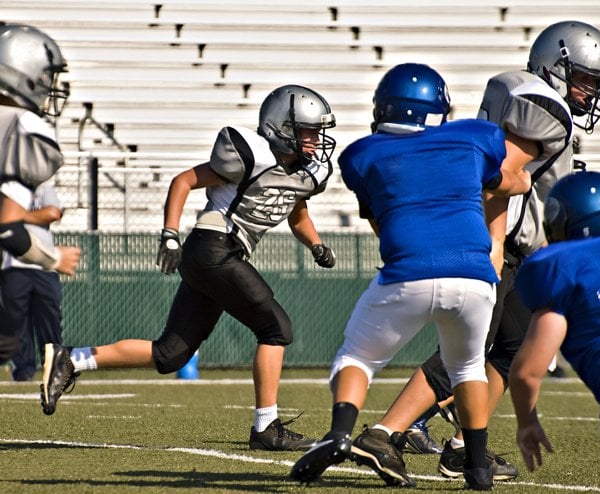




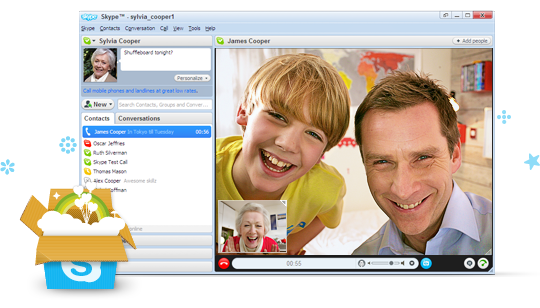

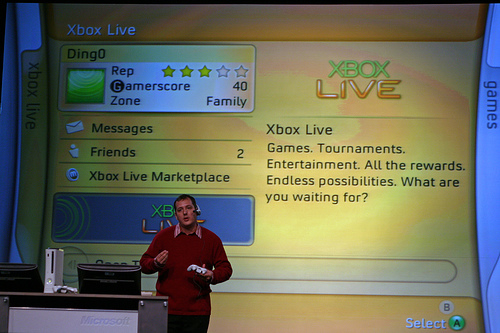













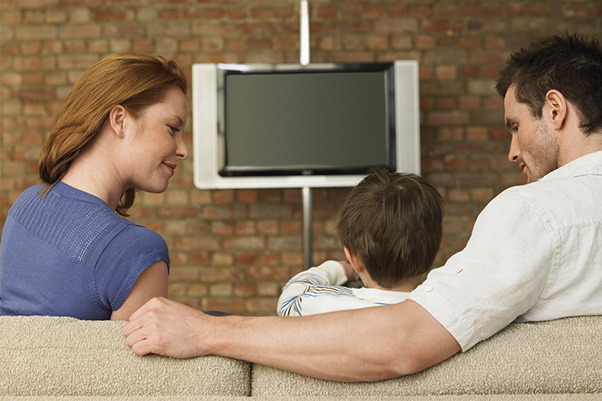



















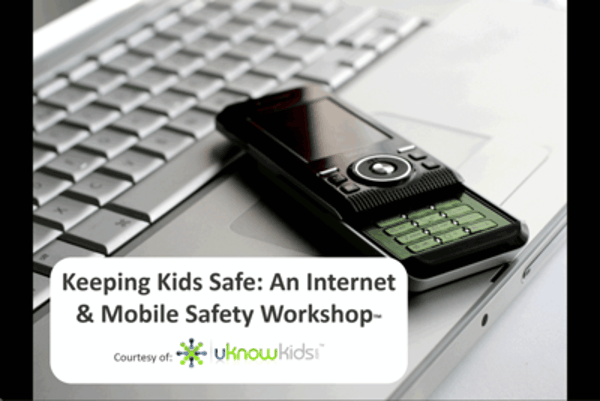























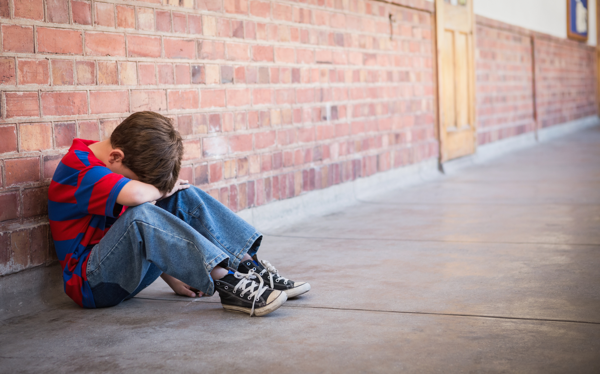























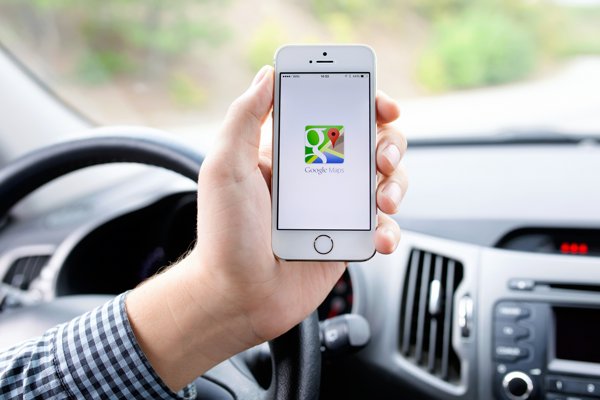














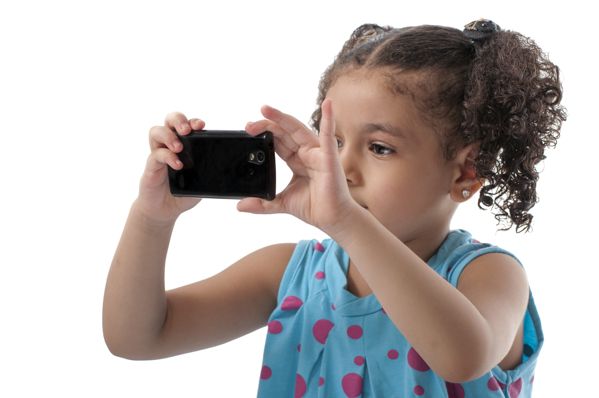



















_-_Copy.jpg?t=1408124163495)

























